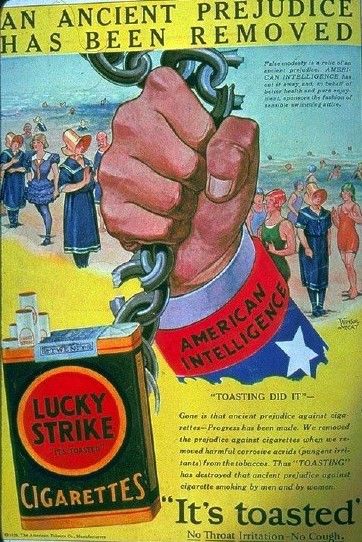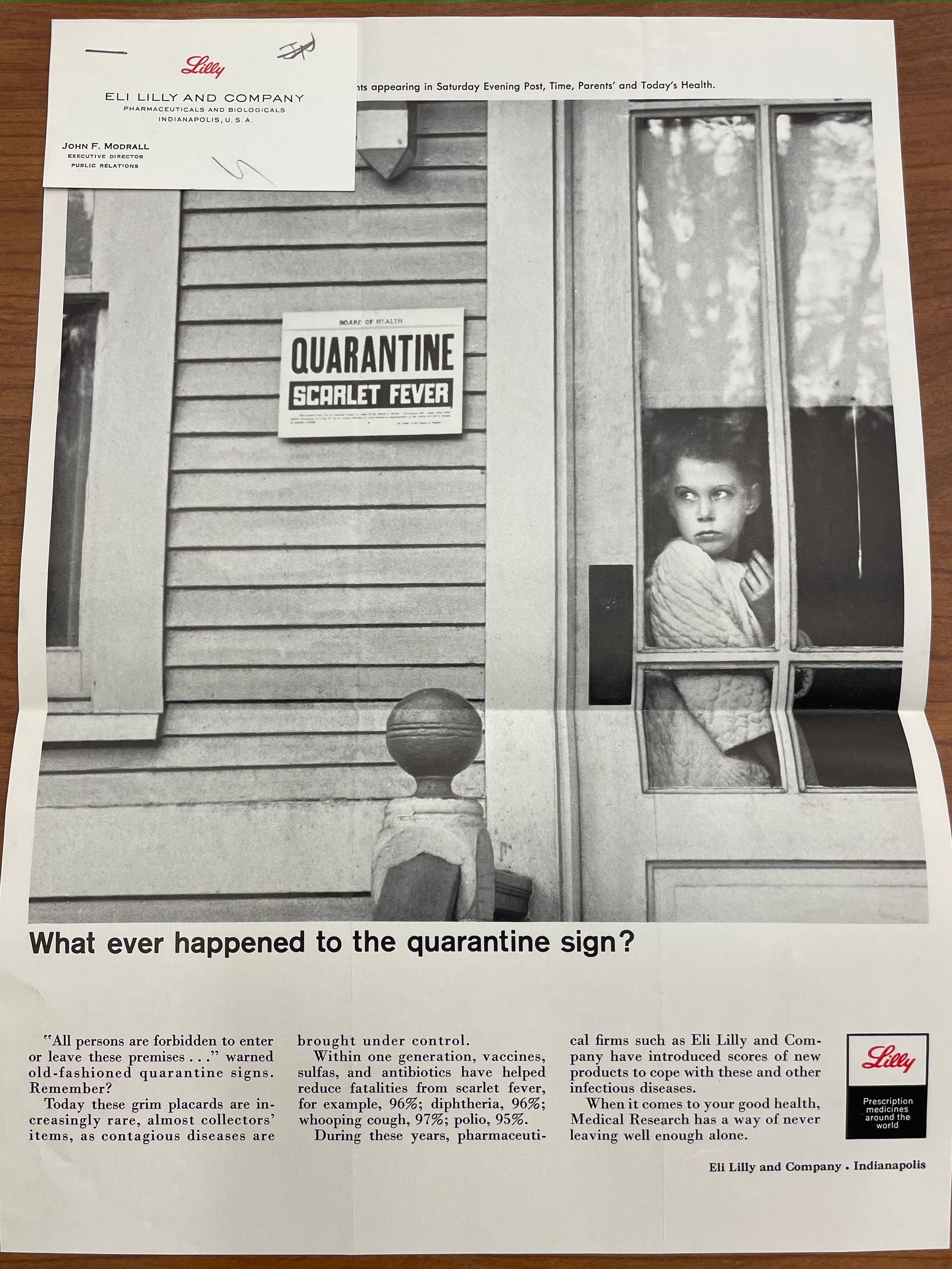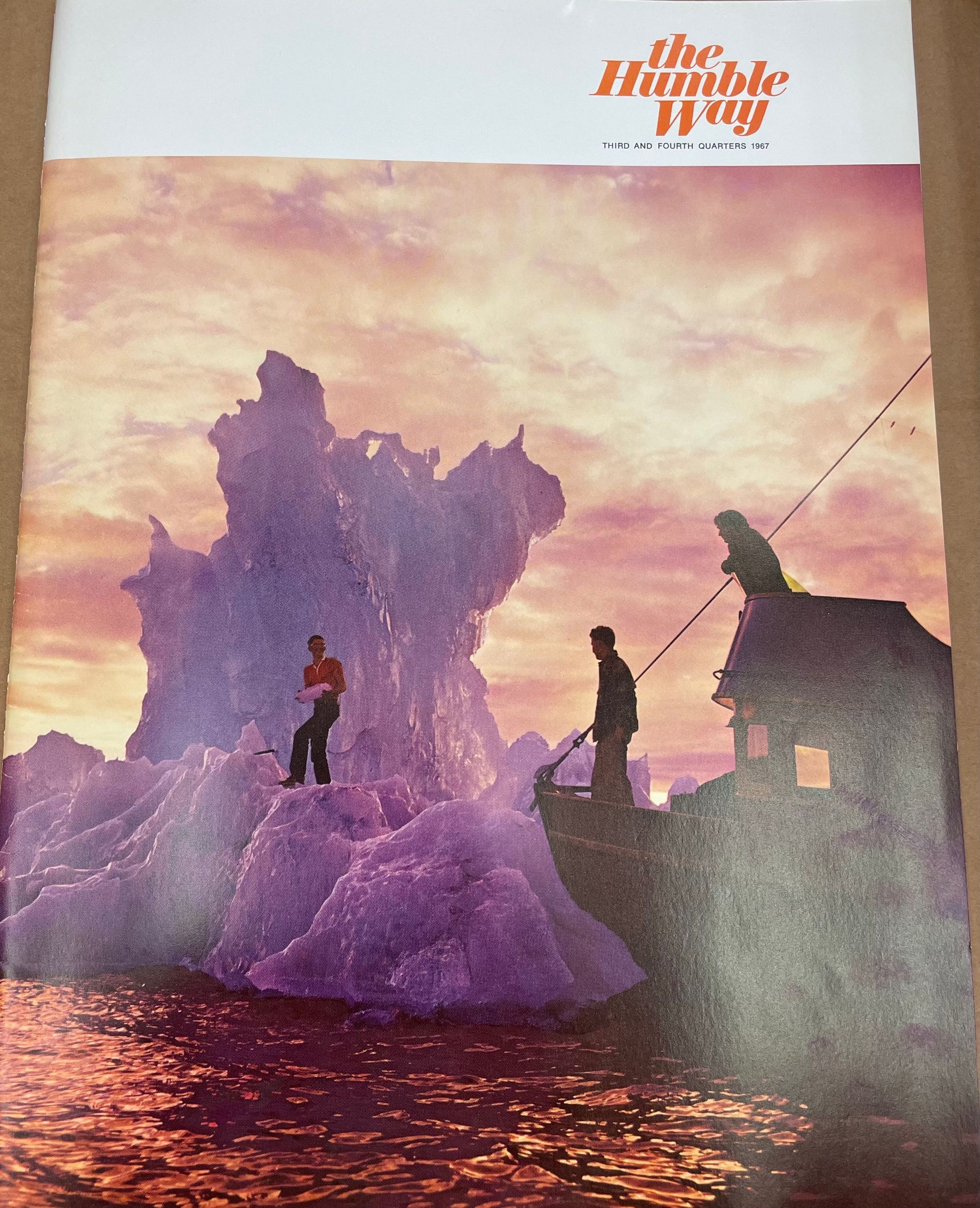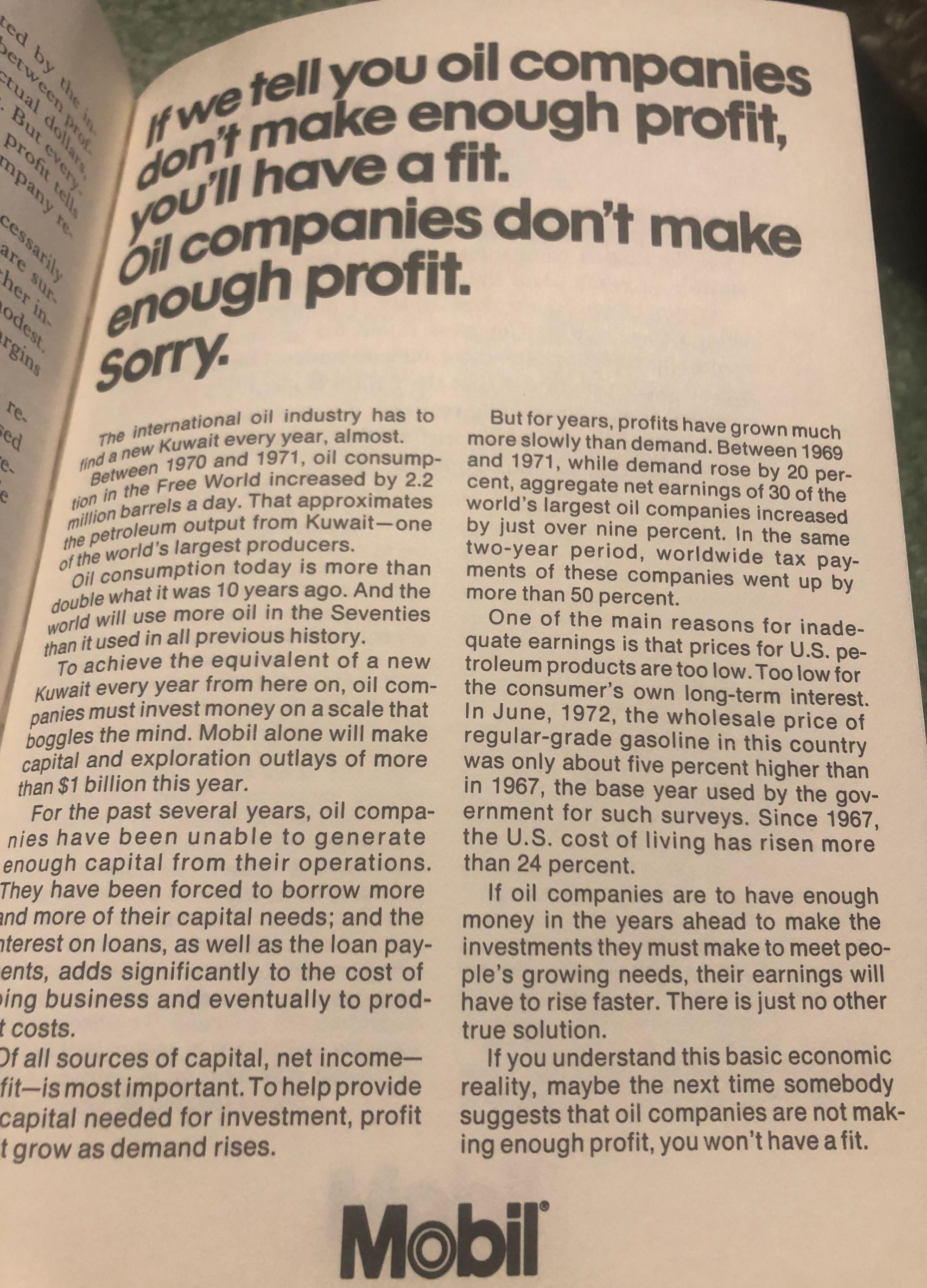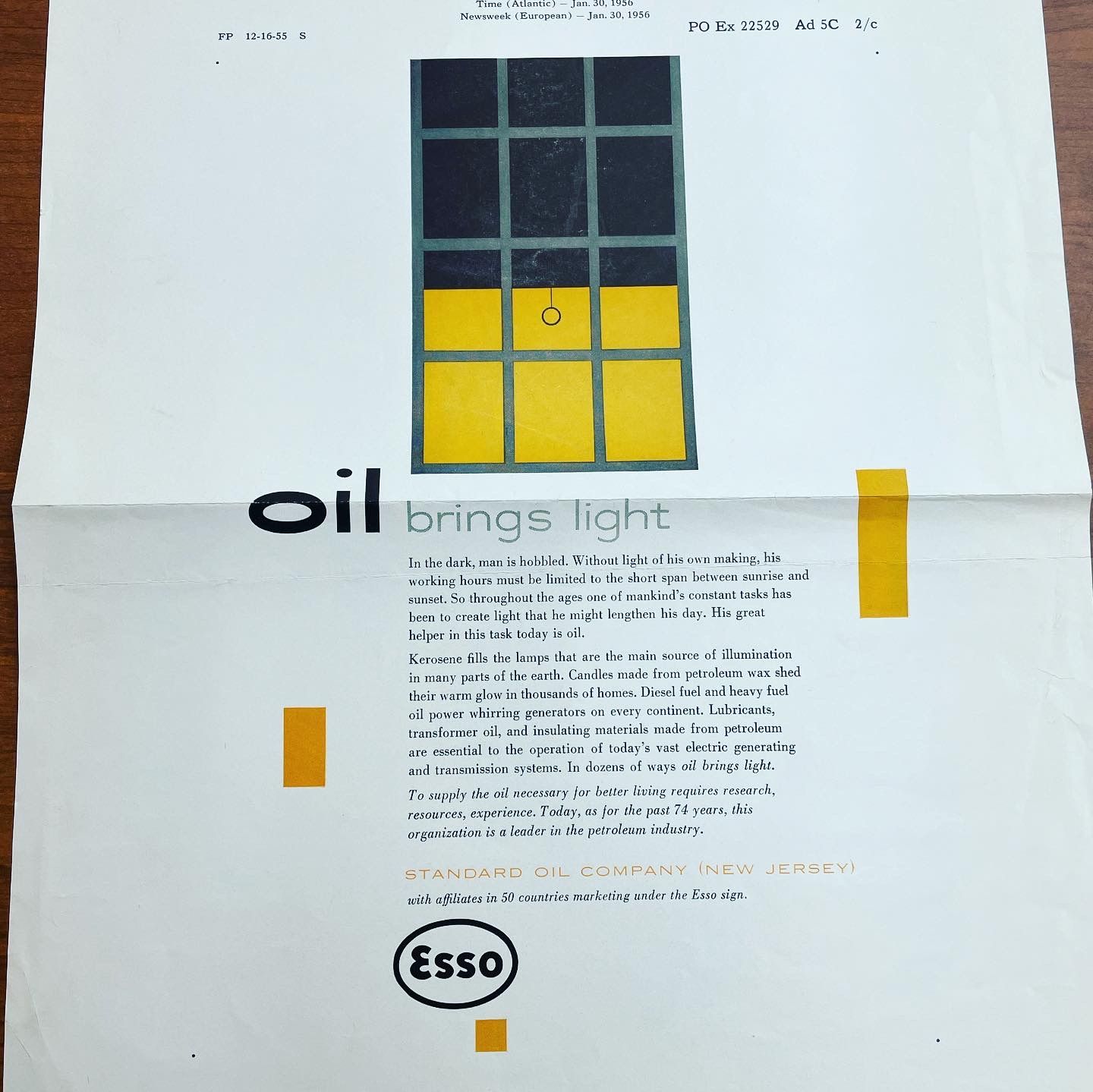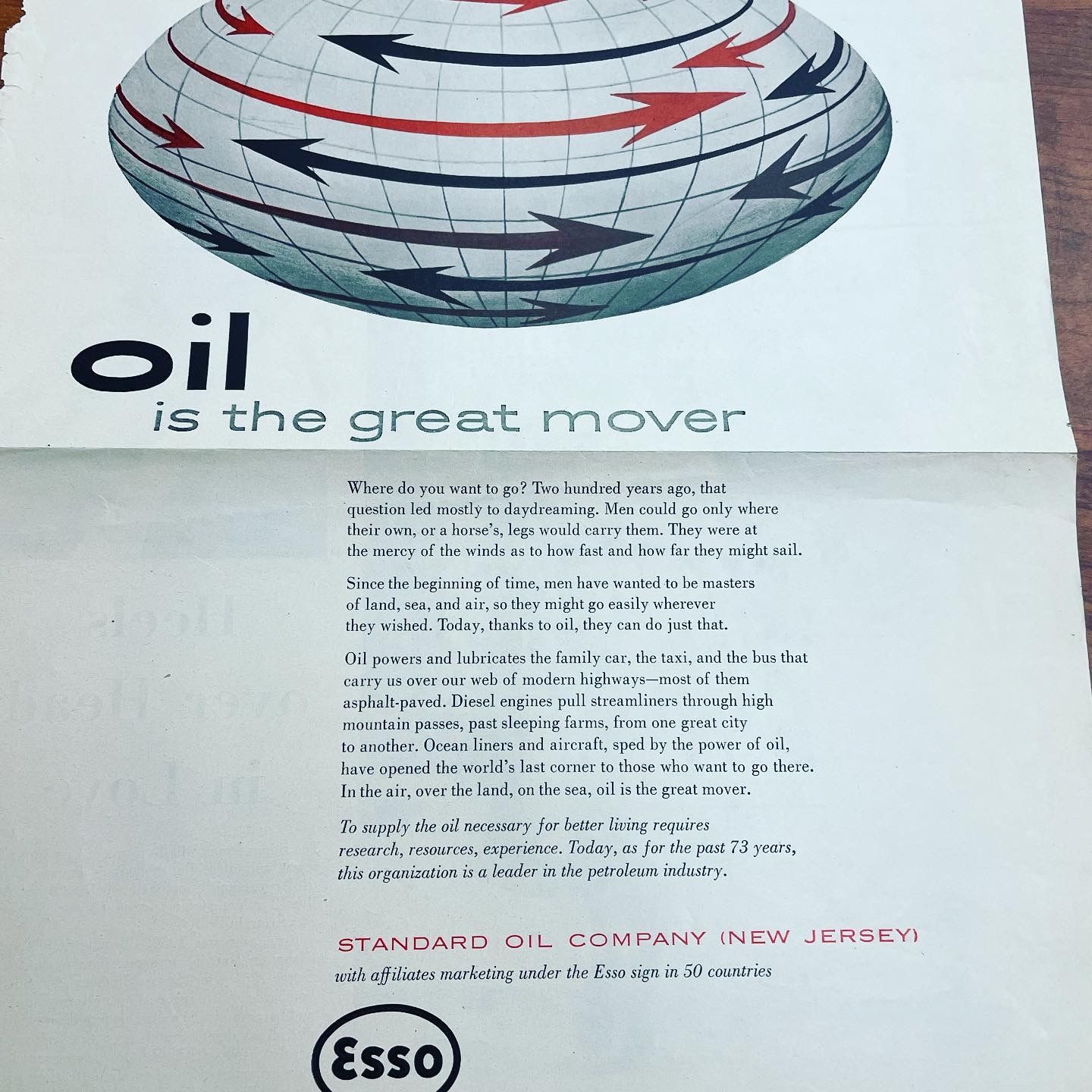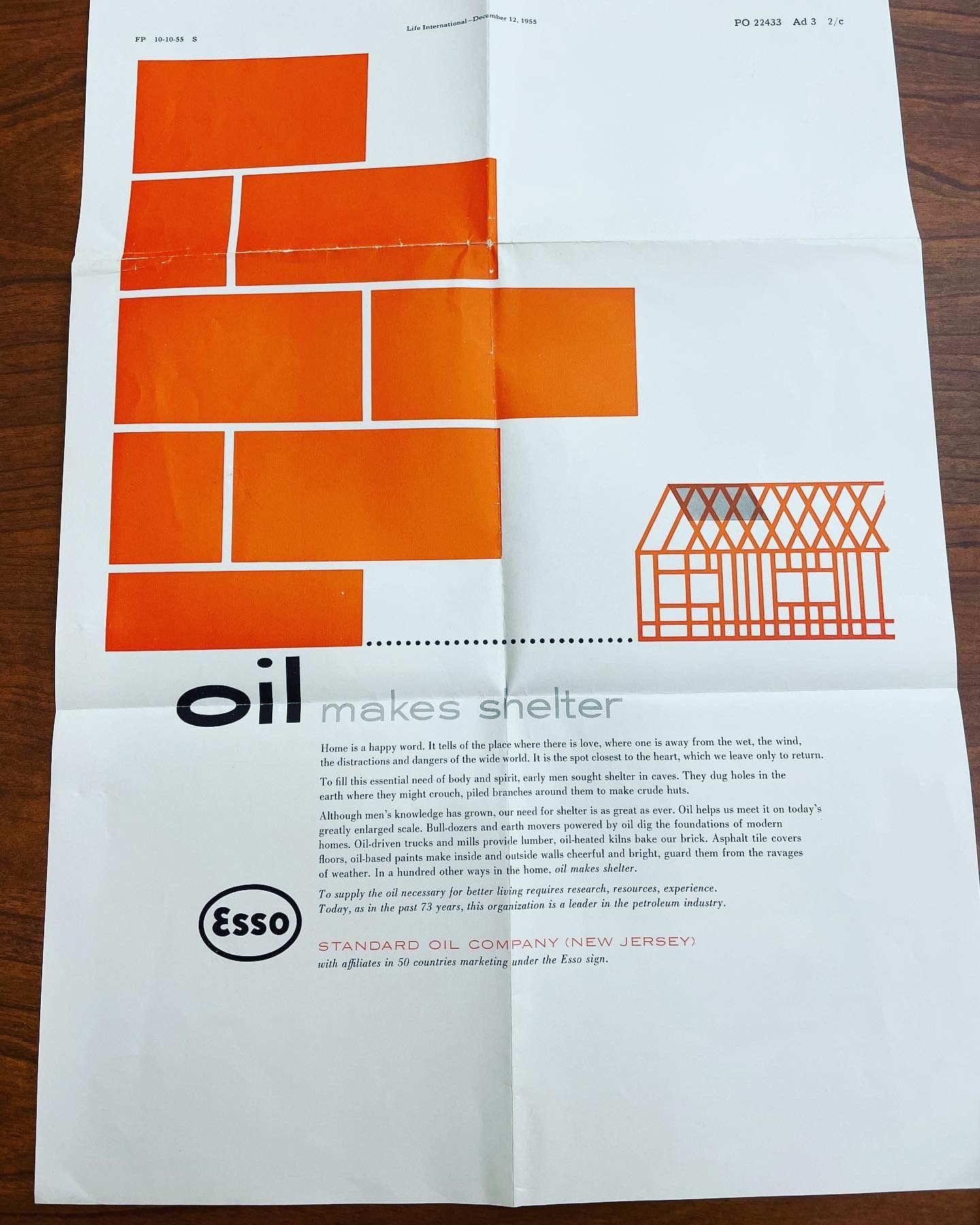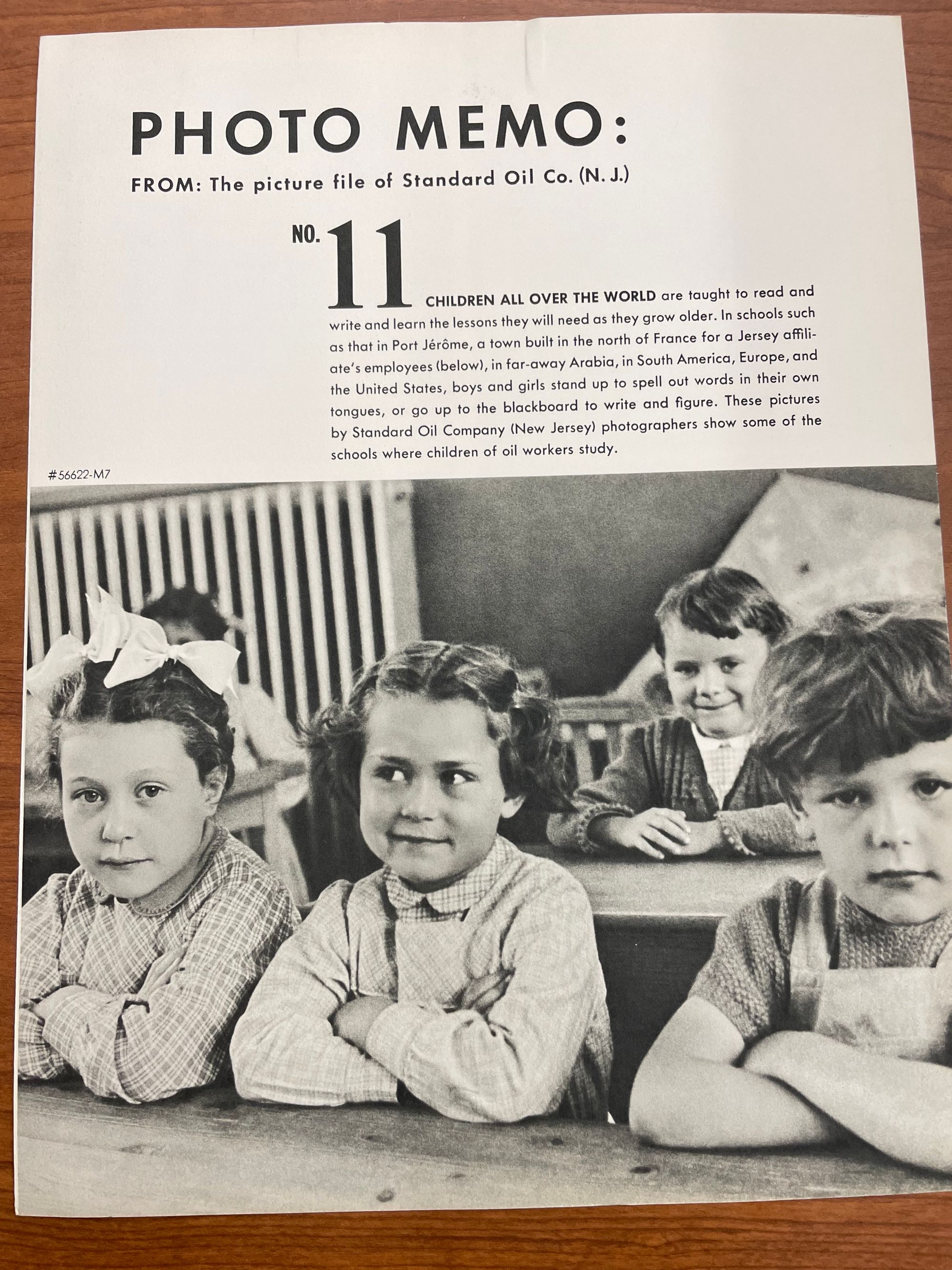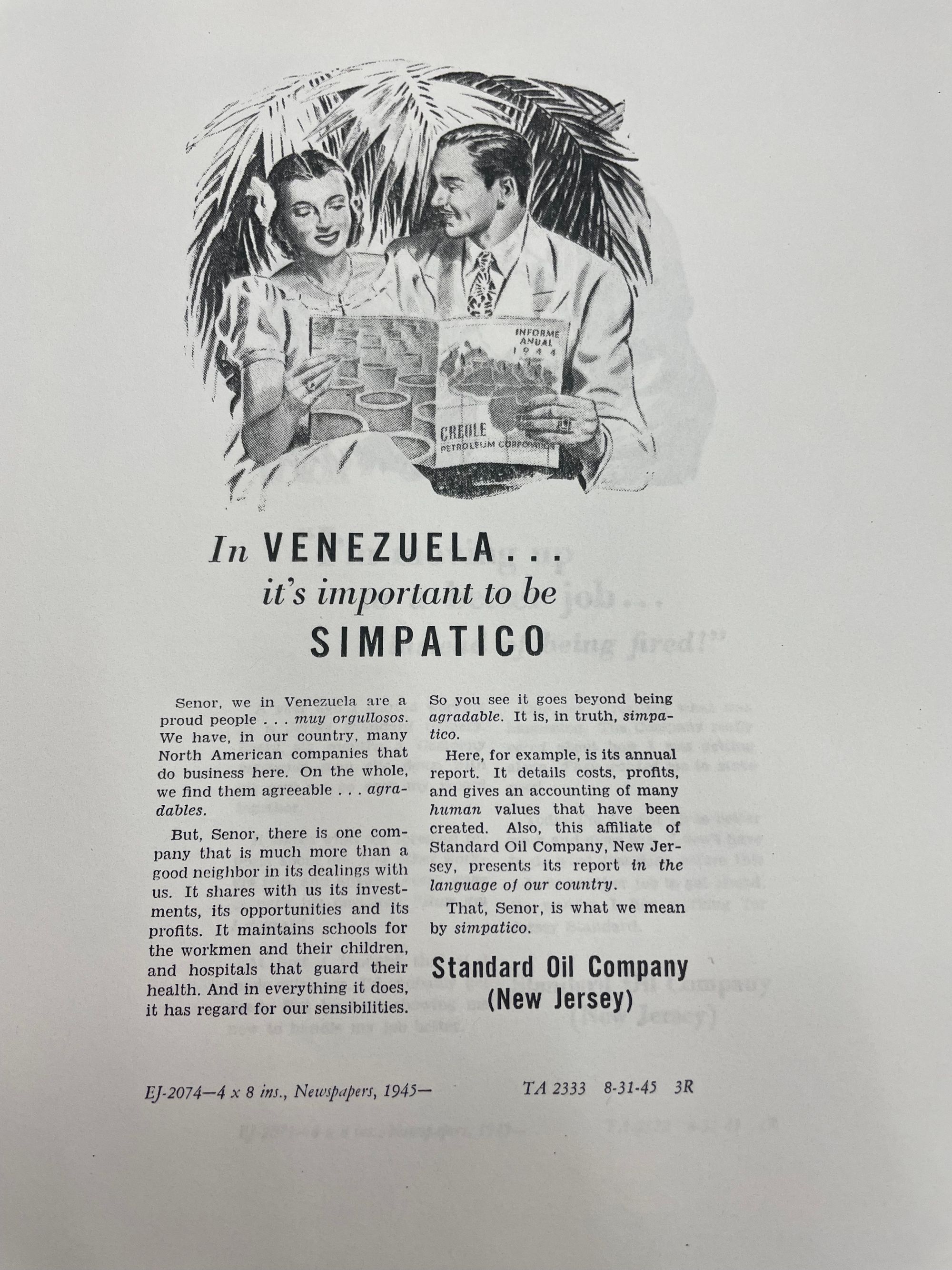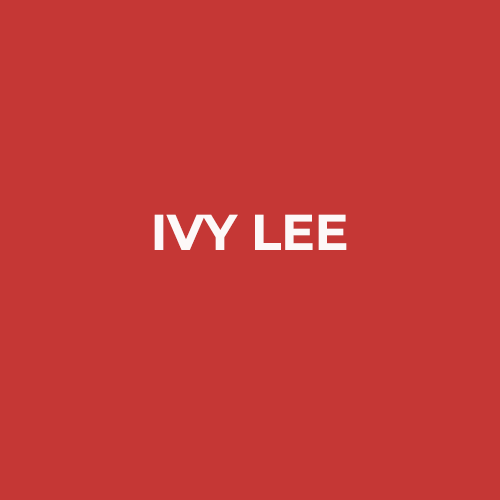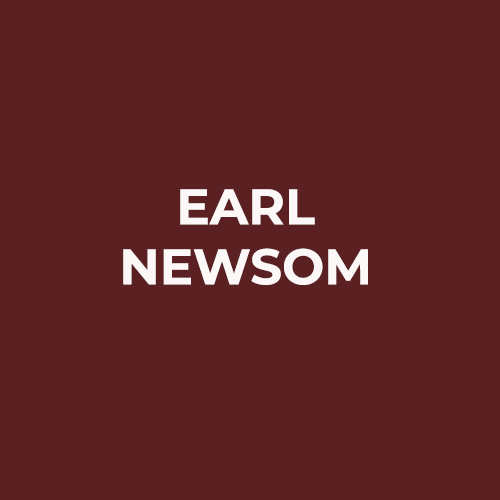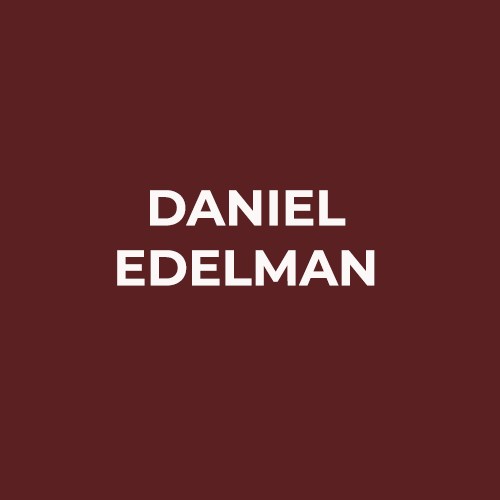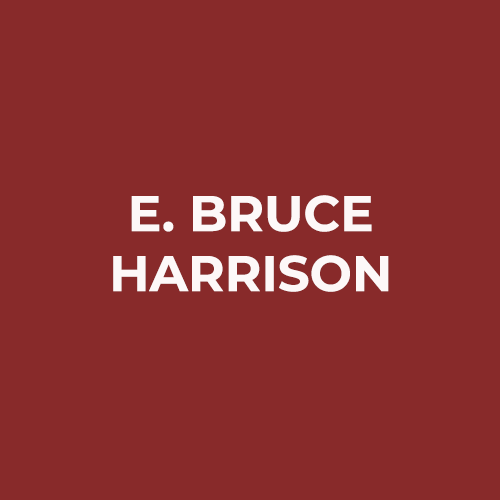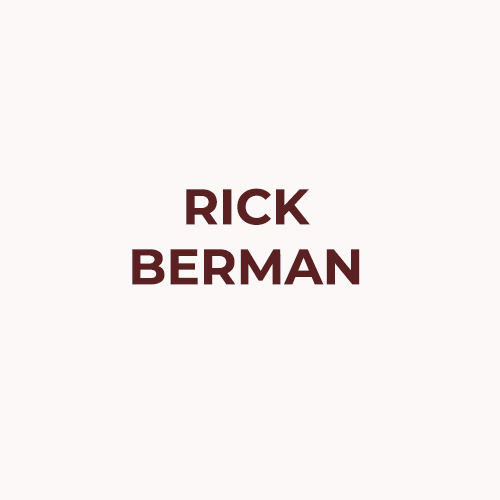There are more than 1000 documents in the Rigged archive, and we're adding more all the time. Below are a few ways to access them, and highlights of some of our favorites.
Document Highlights
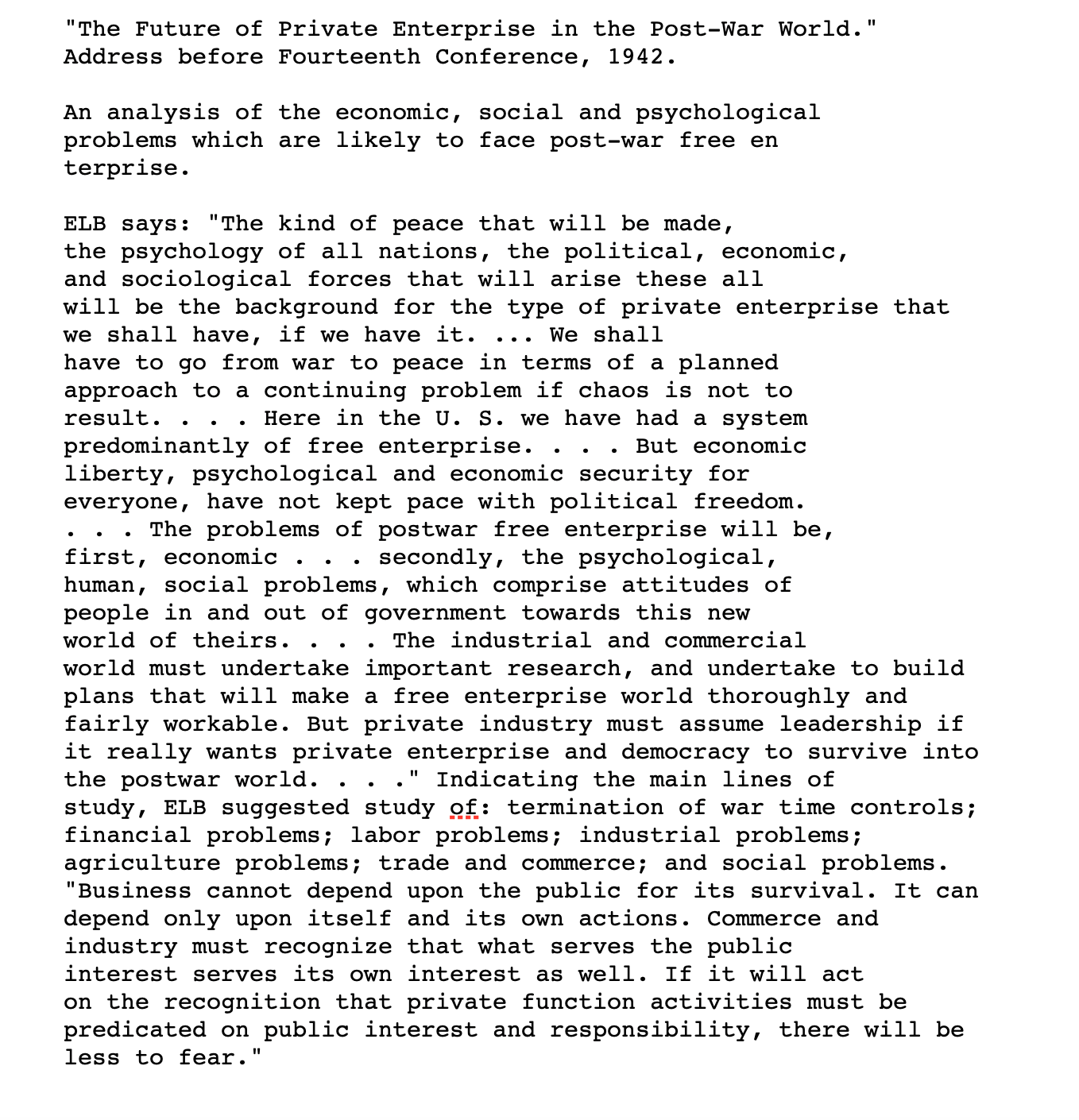
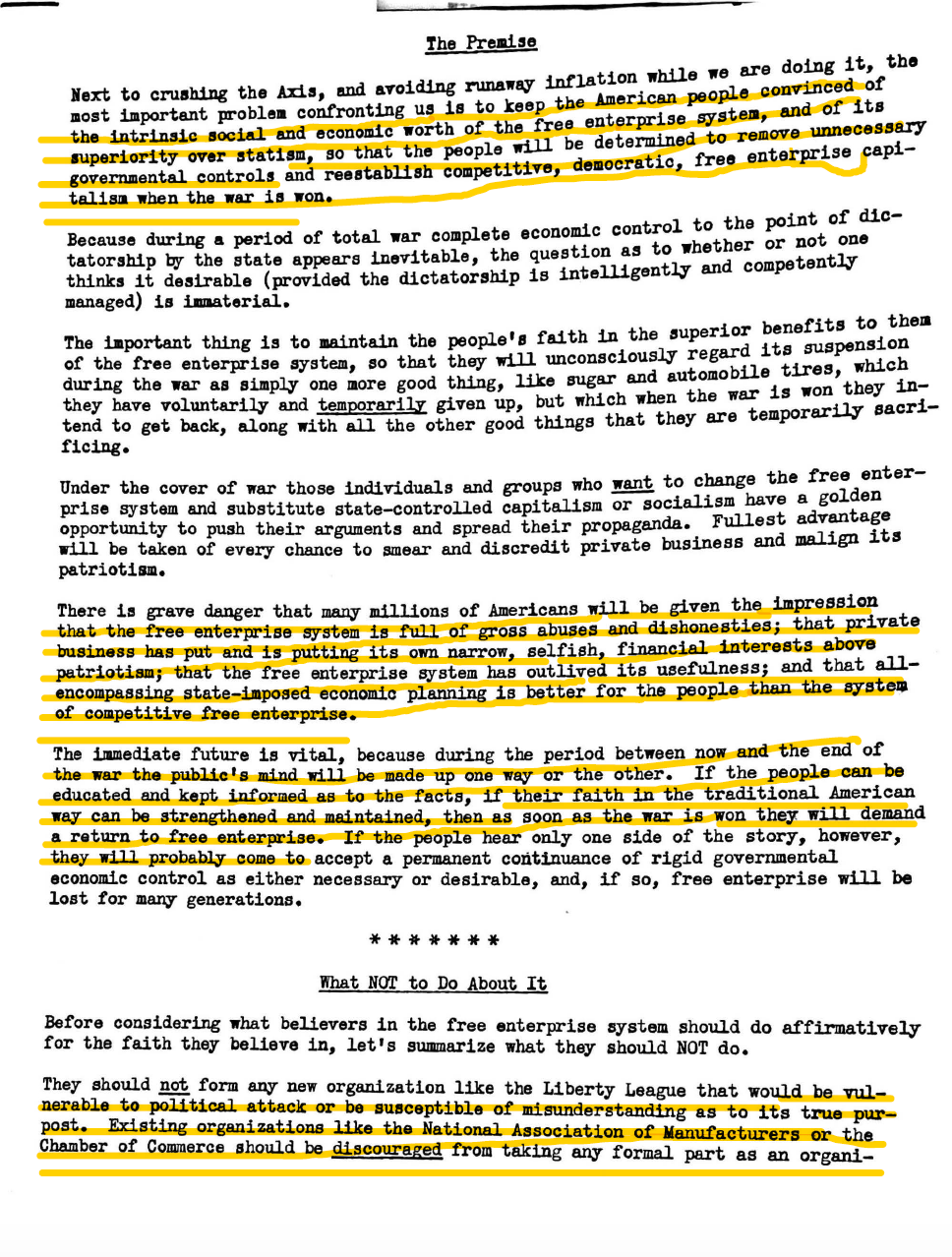
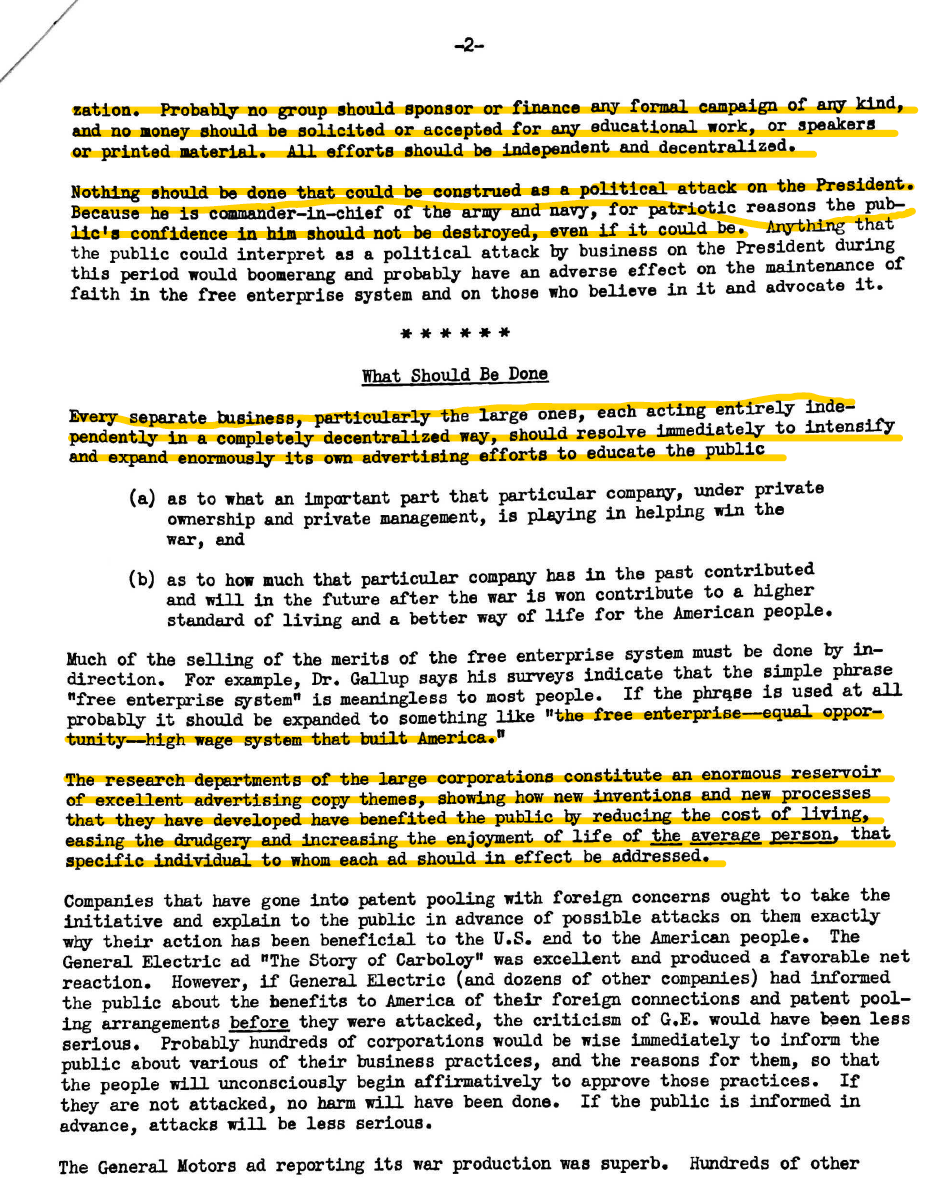
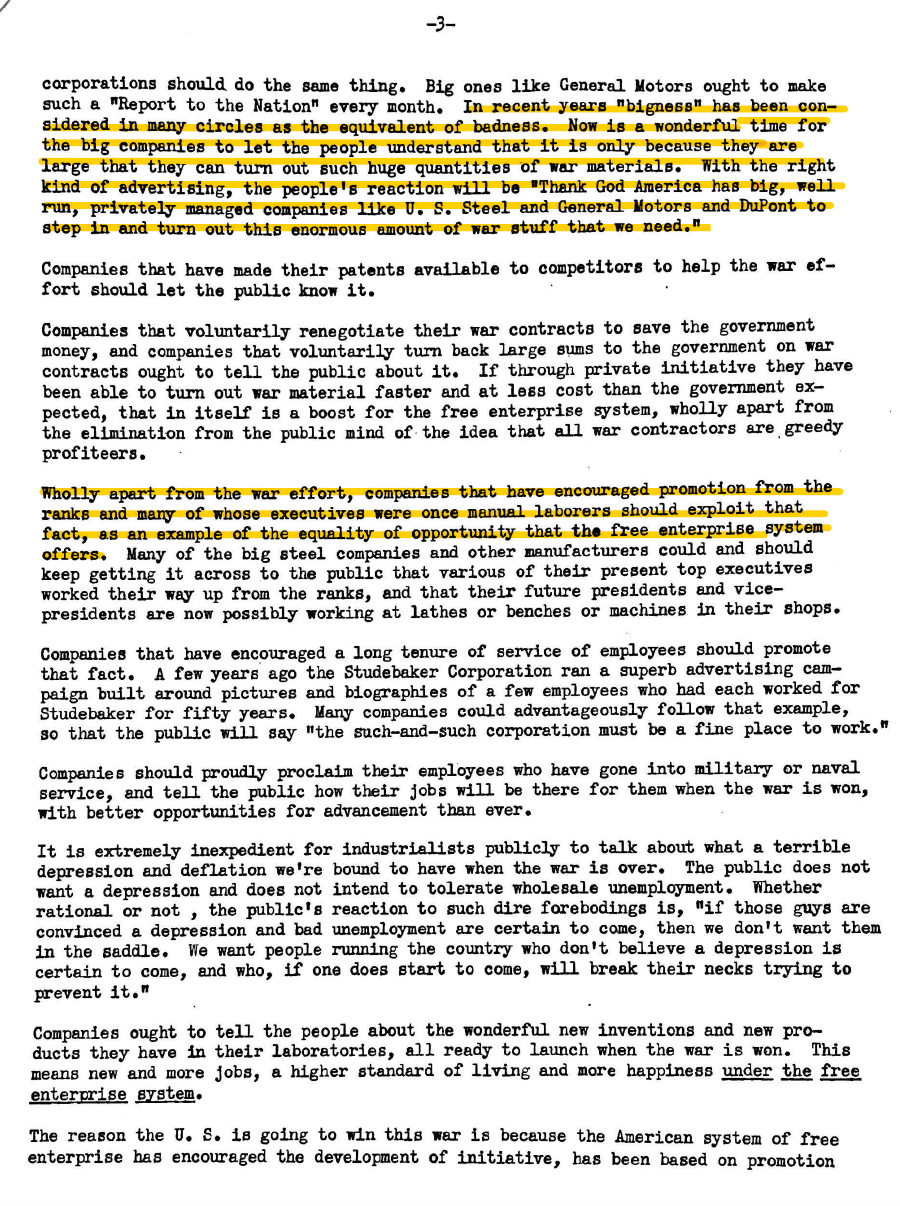
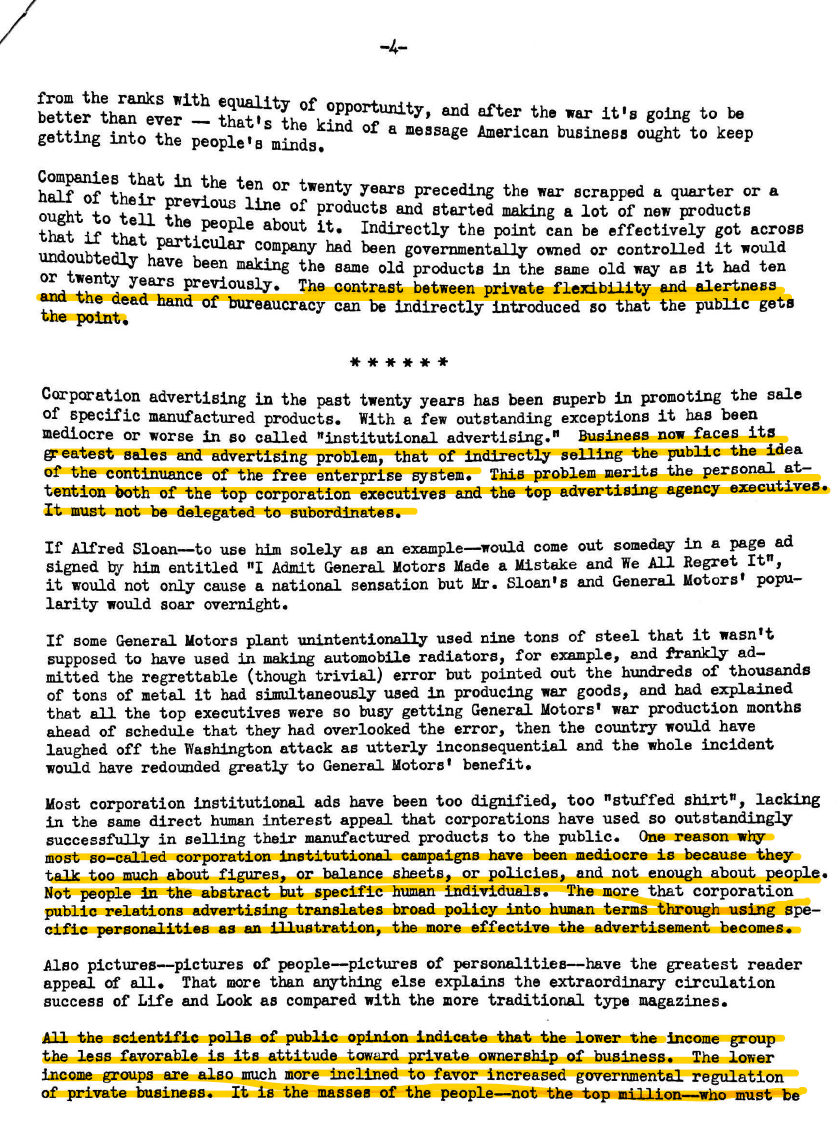
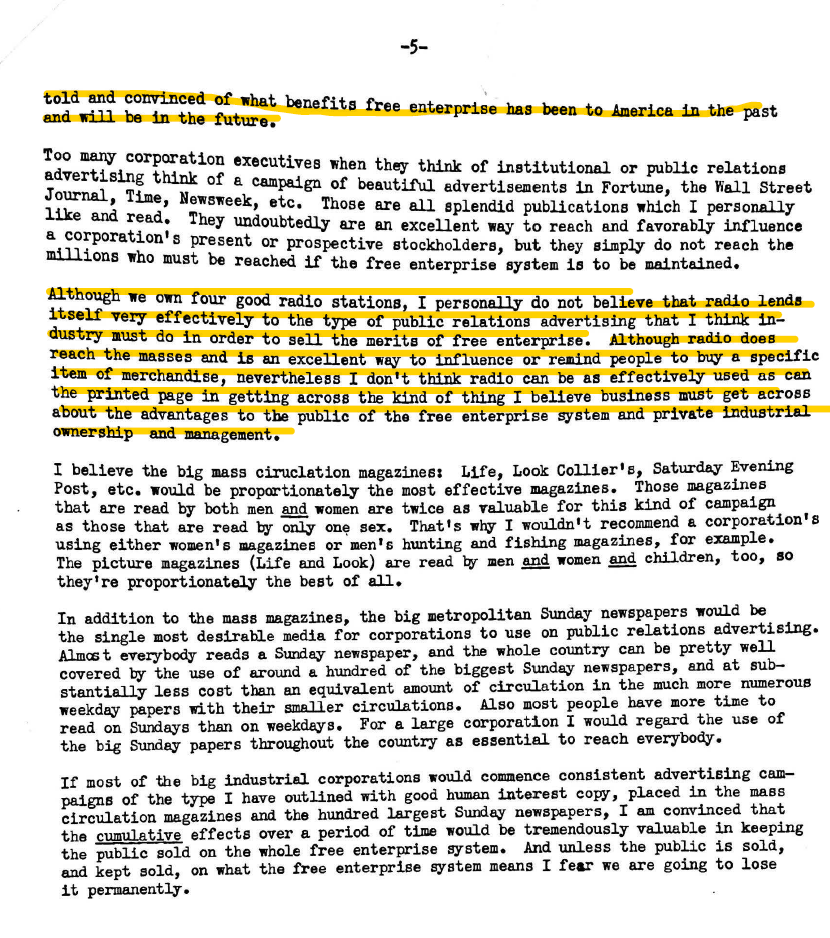
Bernays and Newsom on Post-WWII America and the Need to Push "Free Enterprise"
The first document shown here is an excerpt of Edward Bernays' famous 1942 speech, "The Future of Private Enterprise in the Post-War World". To give you an idea of how much impact that speech had, Bernays turned it into a booklet and created a giant scrapbook of the thousands of people and institutions that asked for a copy. The remaining five pages are a strategy Earl Newsom crafted for his clients (Standard Oil of New Jersey, Ford, and more) to ensure that Americans would continue to embrace "free enterprise" after the war. Between the two of them, Bernays and Newsom had the ear of every powerful executive in America at the time, and they were both concerned that Americans, having experienced the sort of security a highly competent government could provide, might turn against the idea of private enterprise. Newsom described it as a threat equal to that the Axis of Evil posed. Both men counseled their clients on campaigns that would combat such a turn, with an emphasis on investments in research and development, futuristic new products, good wages and benefits for employees, and ads that highlighted all the benefits competition and free enterprise bring to the public but that never, under any circumstances, used the words "free enterprise" or "private enterprise."
In the wake of WWII we of course saw a huge boom in consumption in America, and the story often told about that is that Americans were so relieved to see the war end that it put them in a rather spendy, baby-making kind of mood. That may be, but the country's most adept propagandists were also pushing the country hard in that direction.
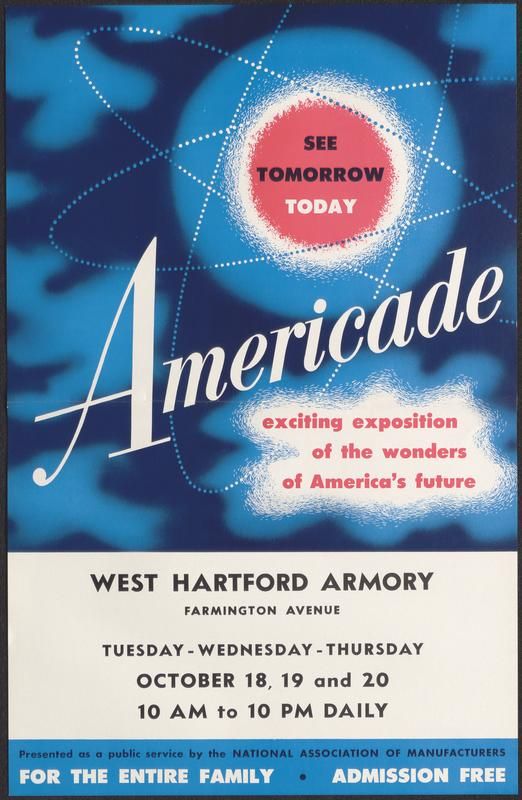
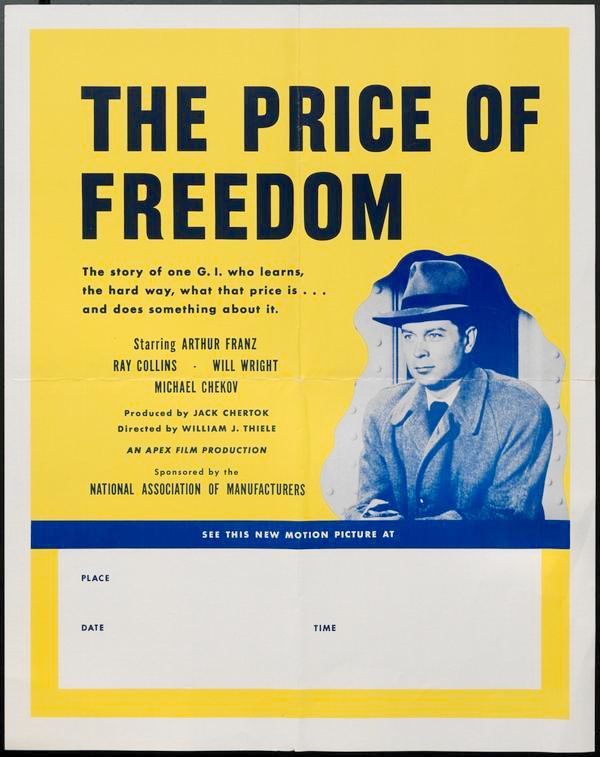
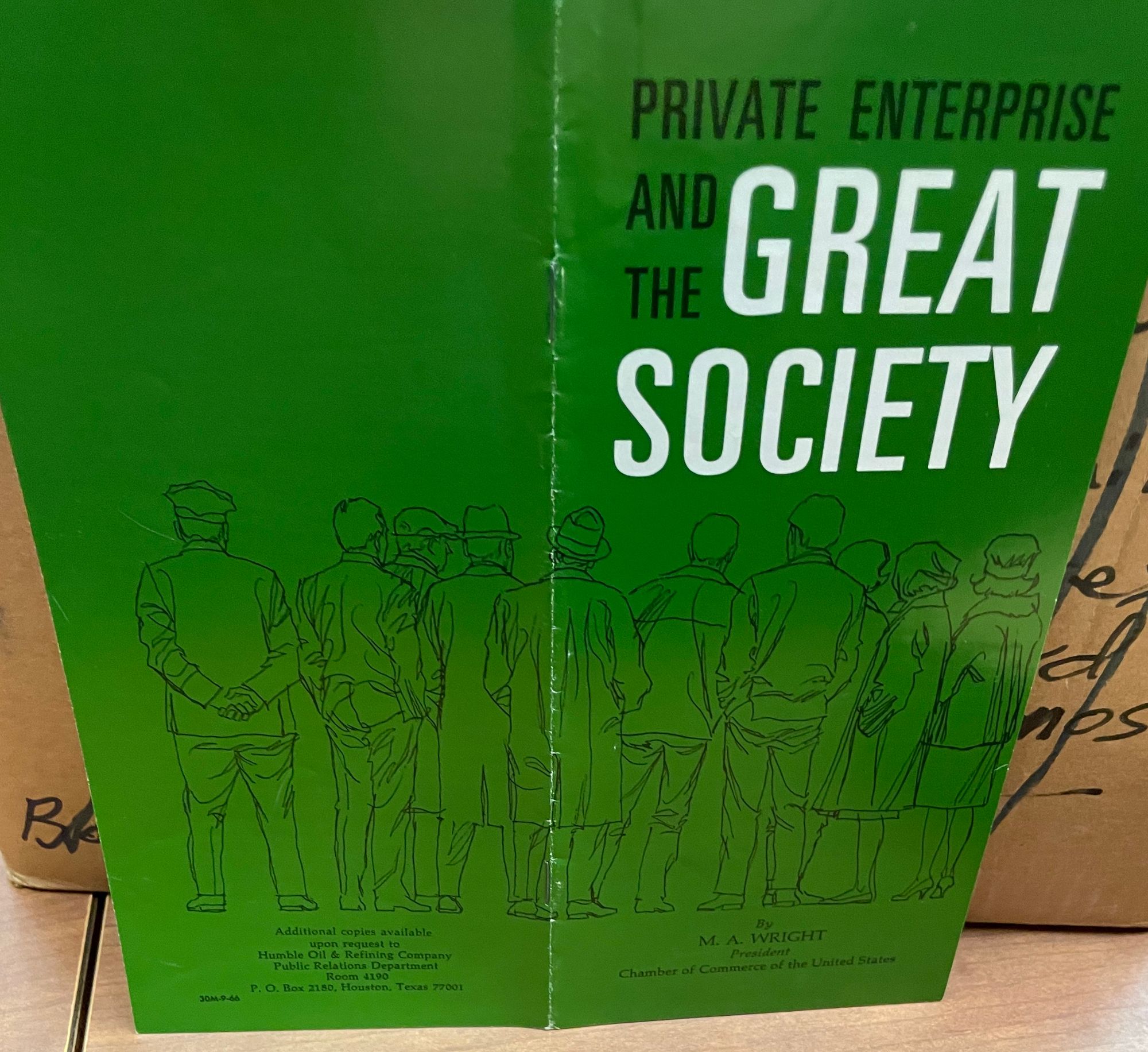
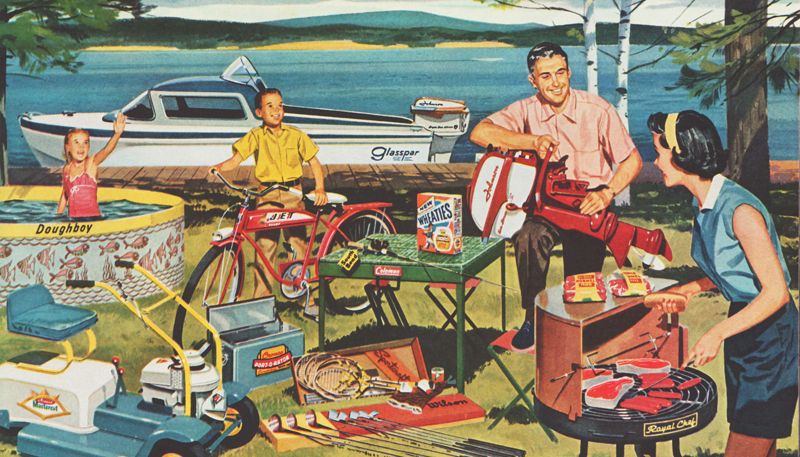
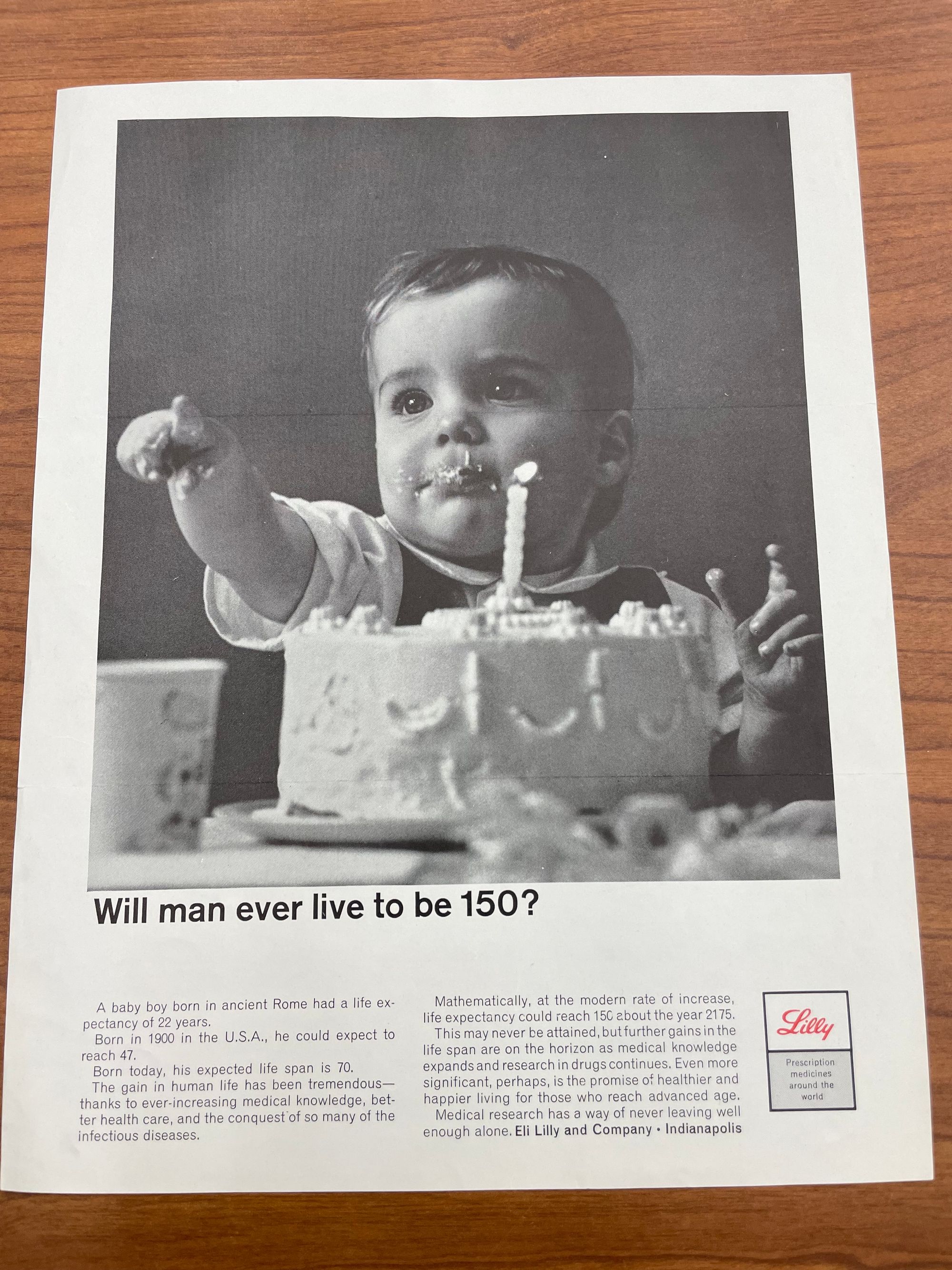
Herb Schmertz on His Role Building Masterpiece Theatre
For decades, PBS maintained that Mobil Oil simply underwrote the costs of Masterpiece Theatre and their involvement ended there. But the long-buried transcript of an interview with Schmertz that we found at the University of Maryland, he tells a very different story. Schmertz also delves into his relationship with The New York Times in this interview, and why he approached marketing Mobil "like a political campaign."
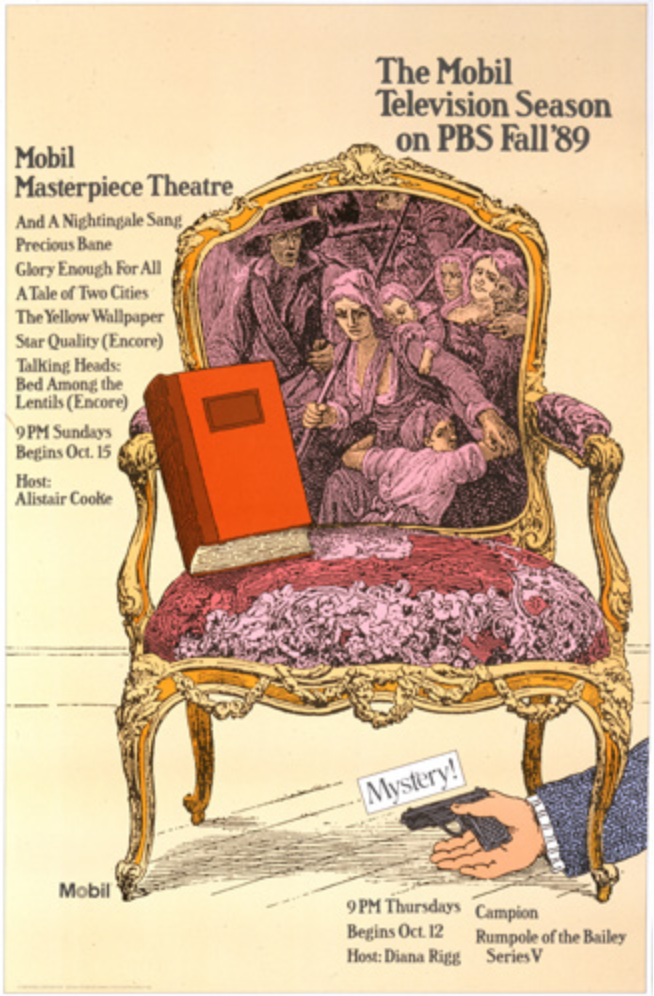
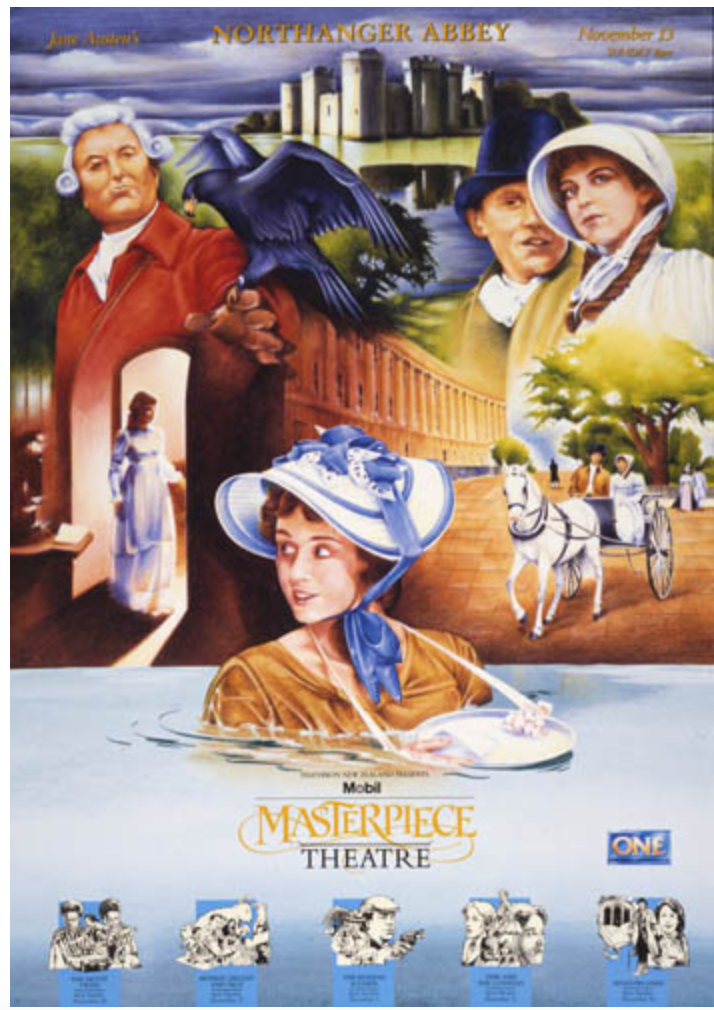
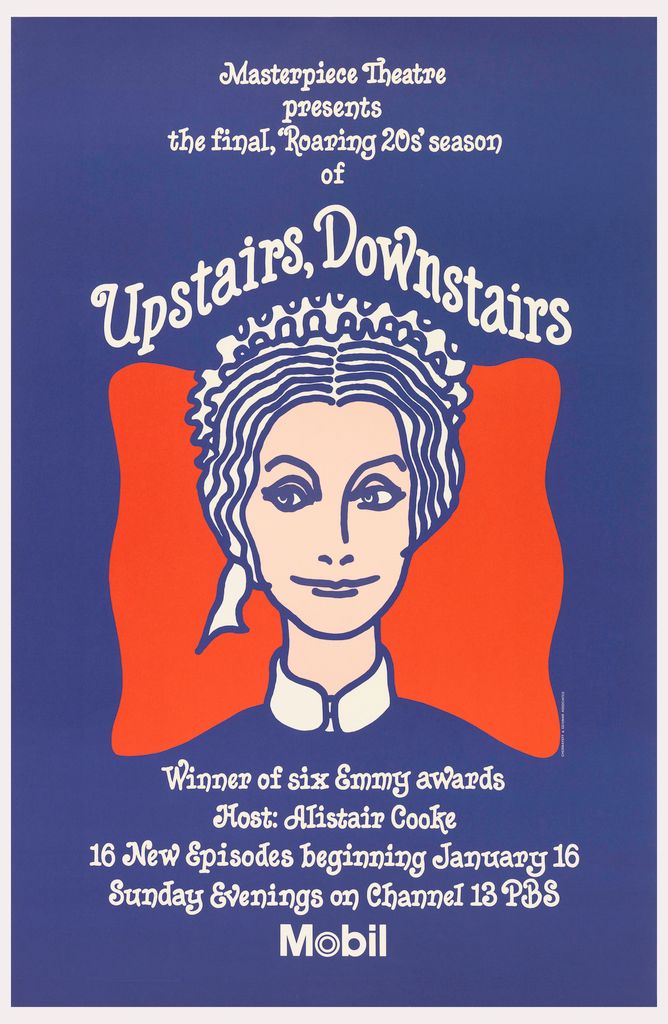
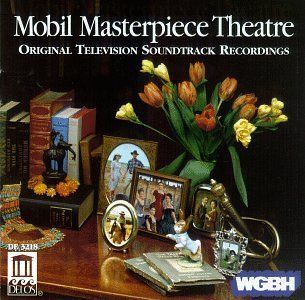
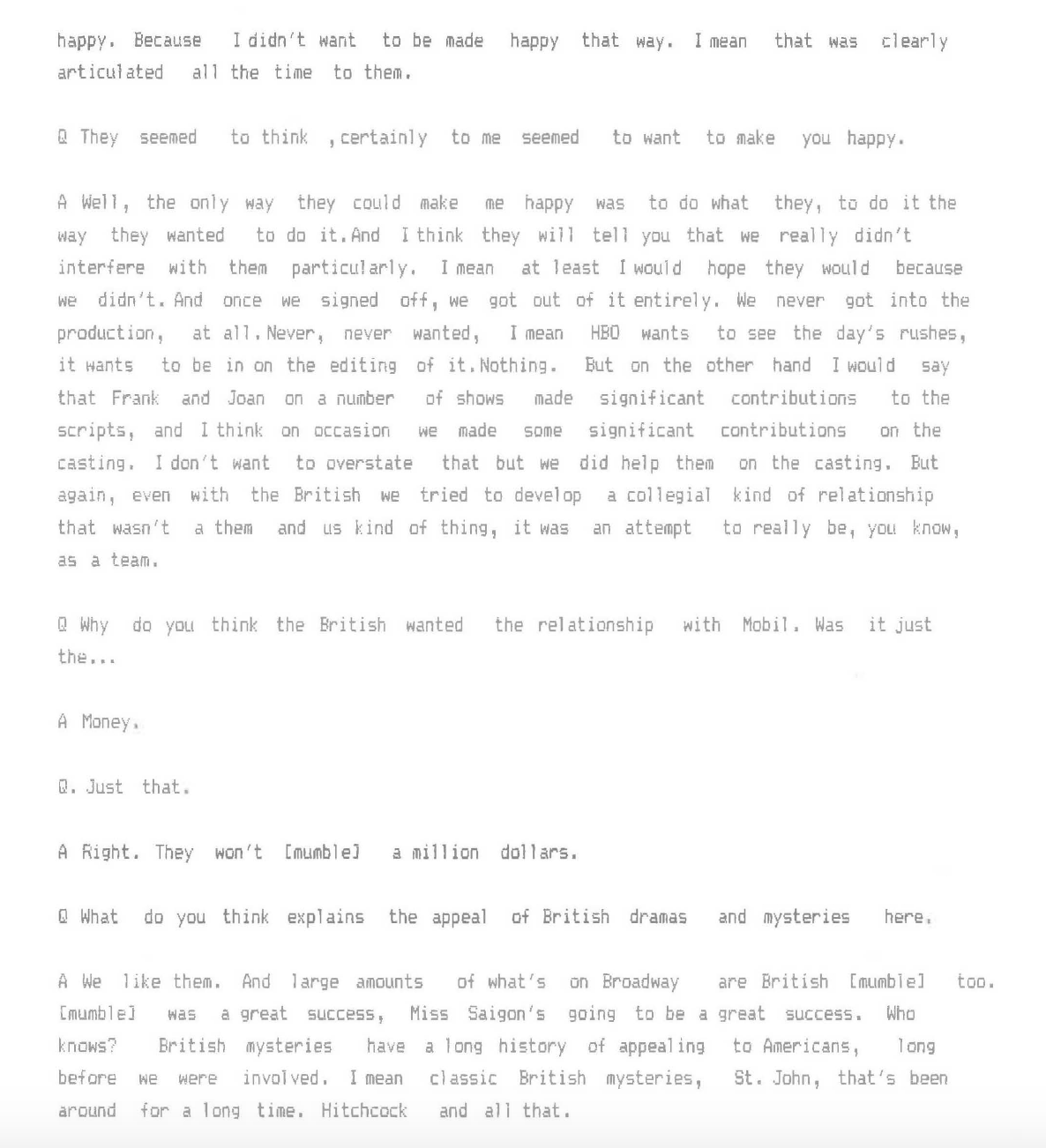
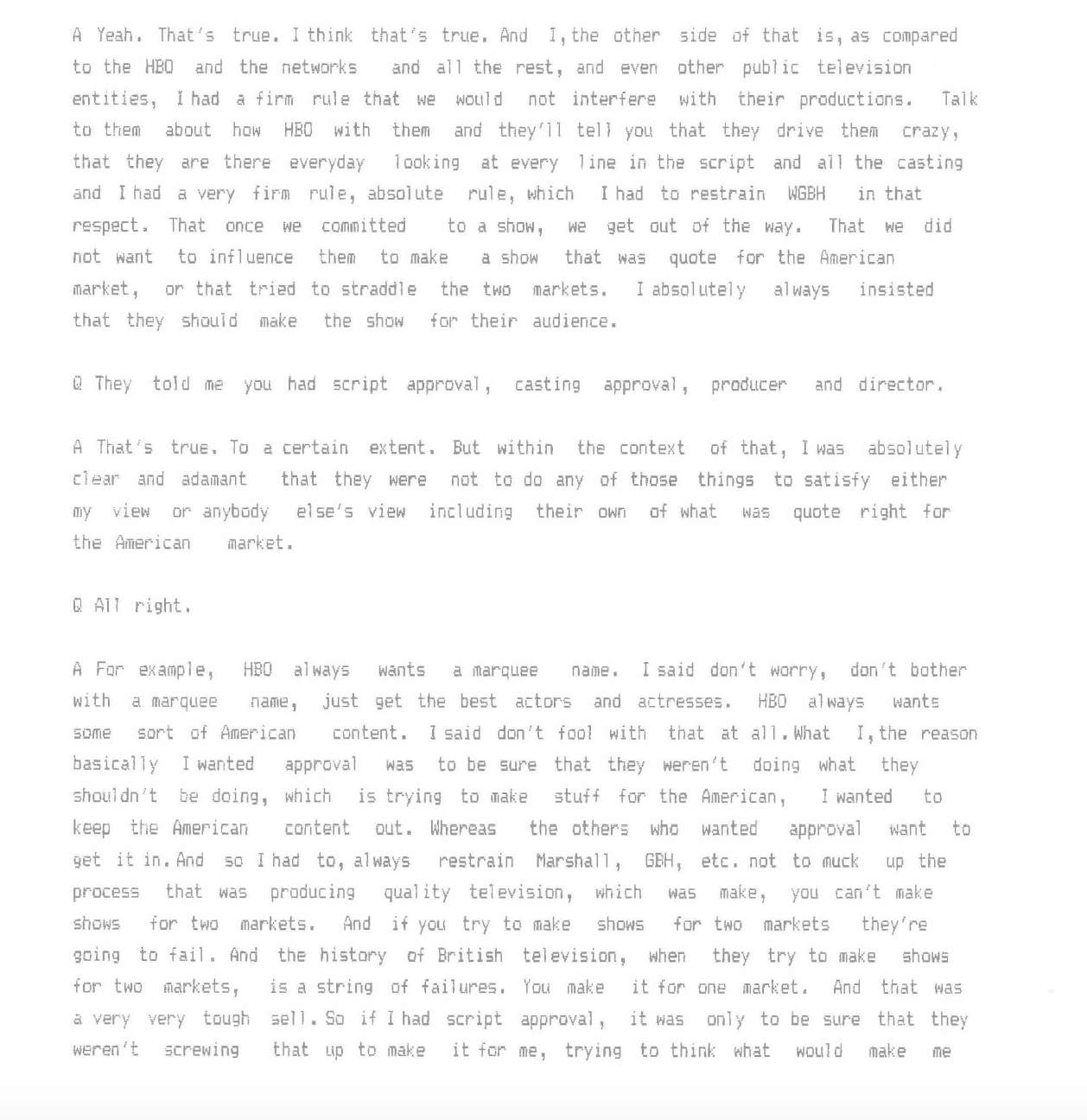
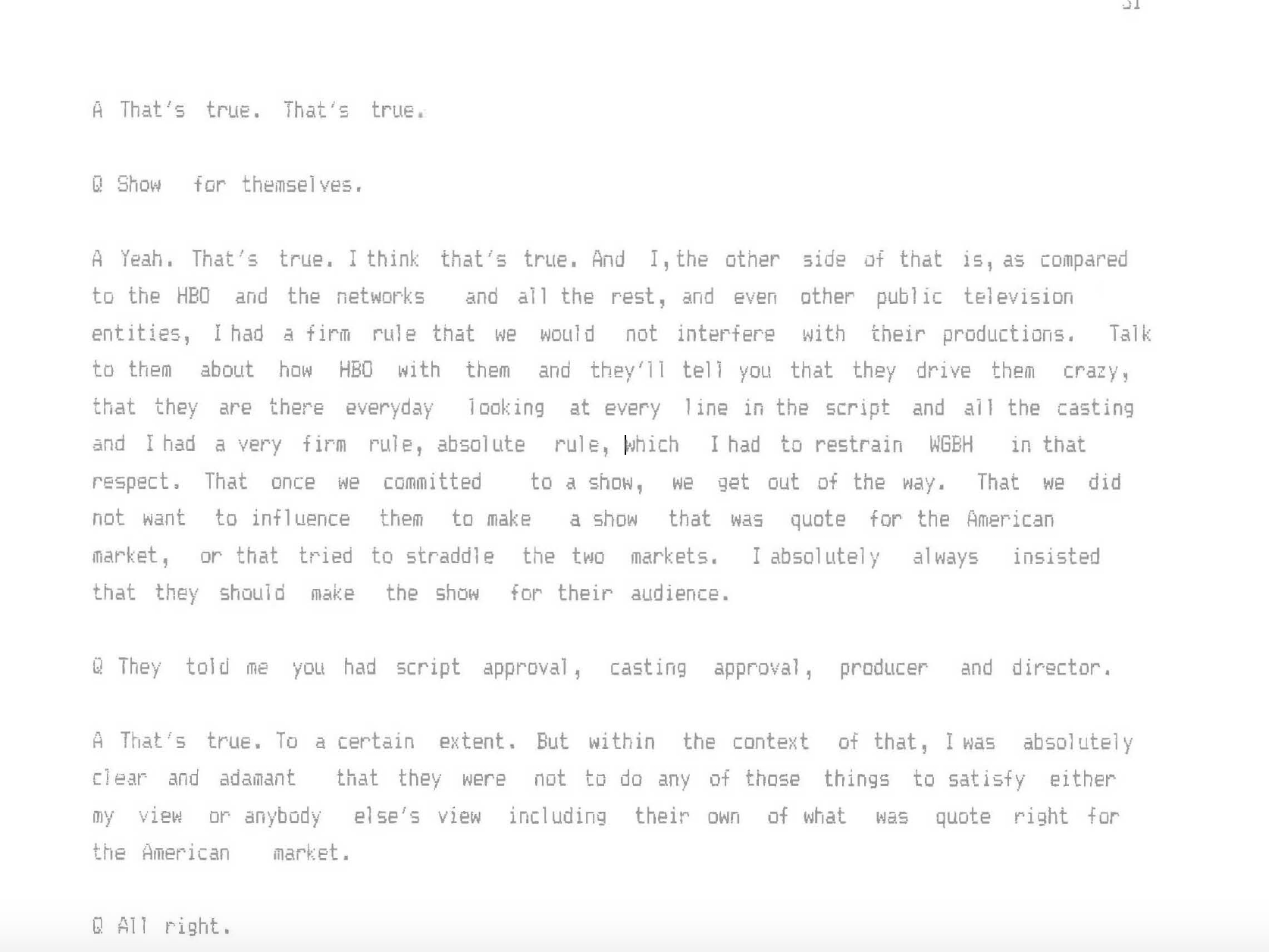
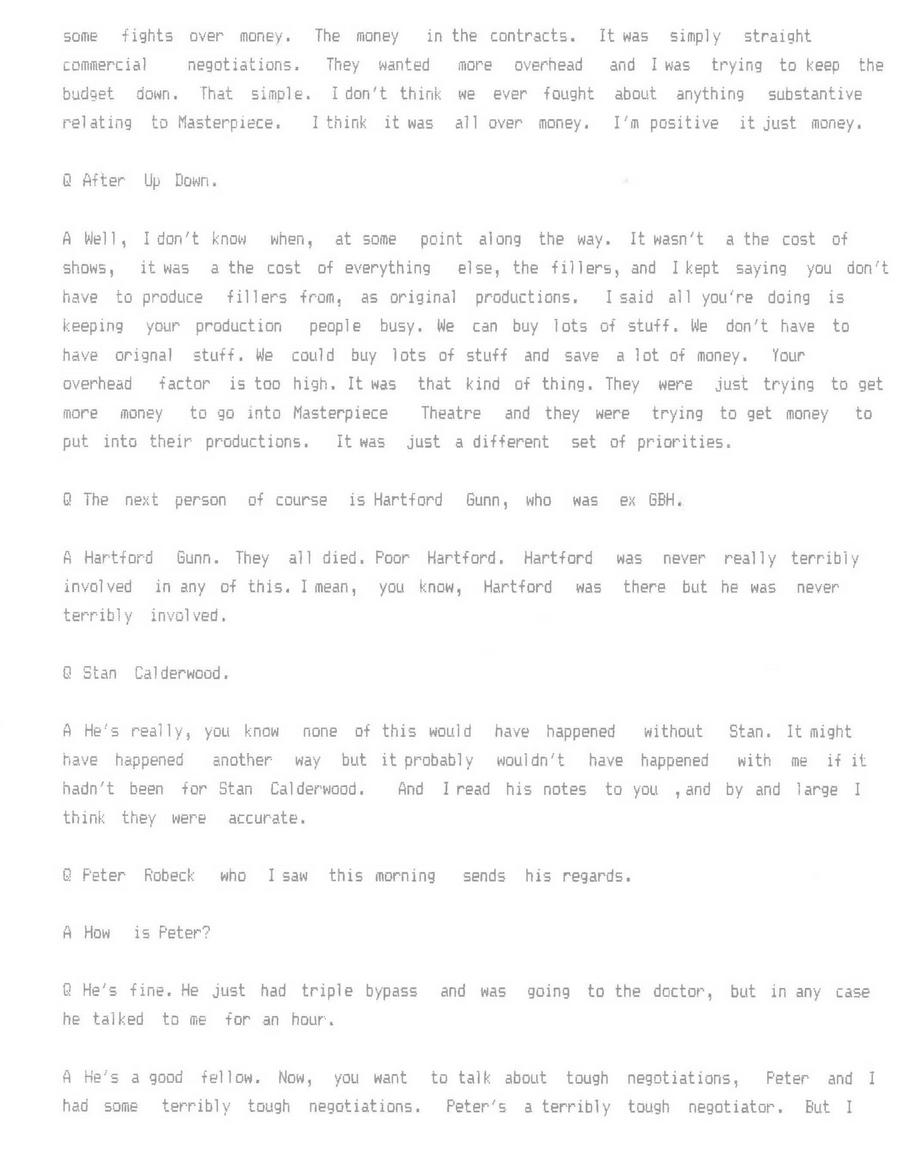
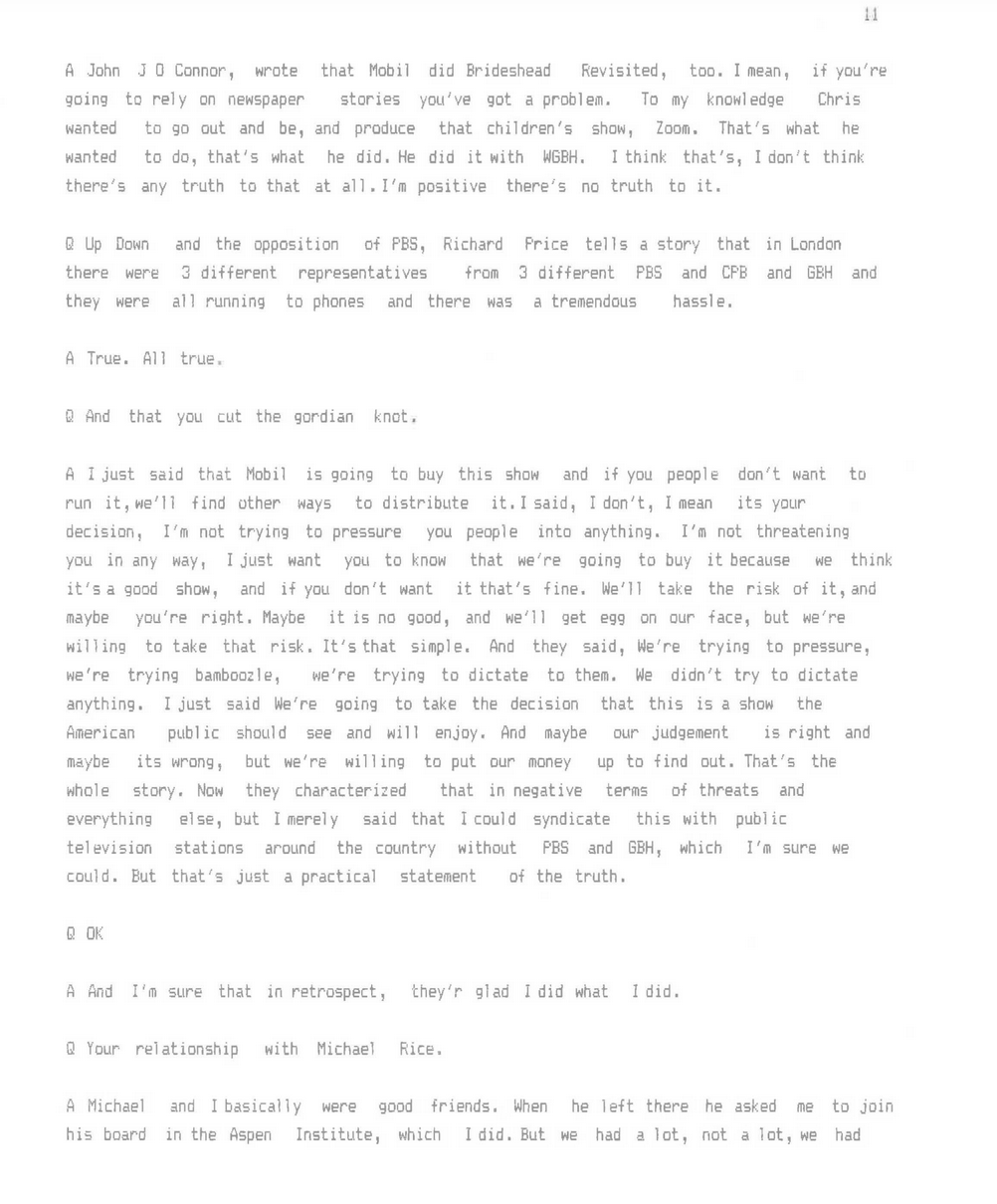
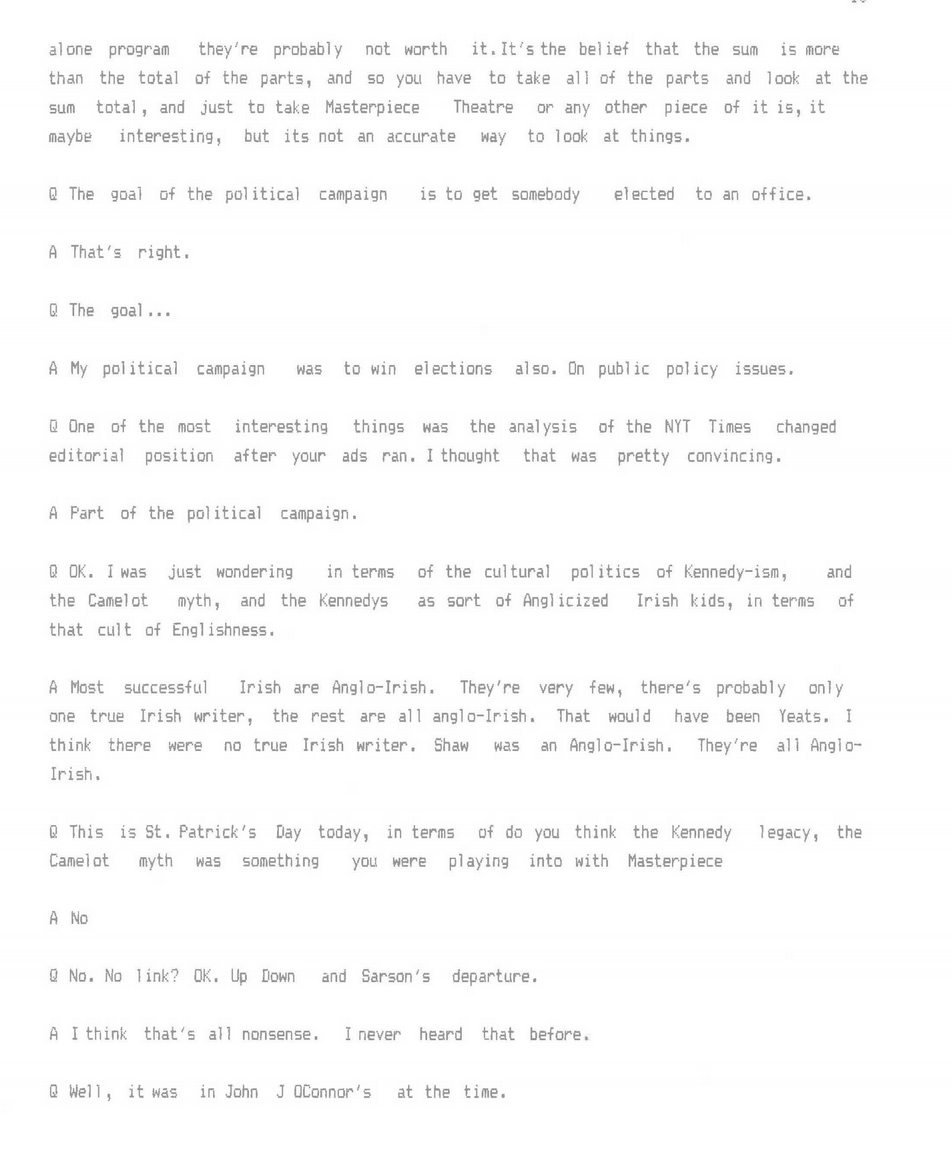
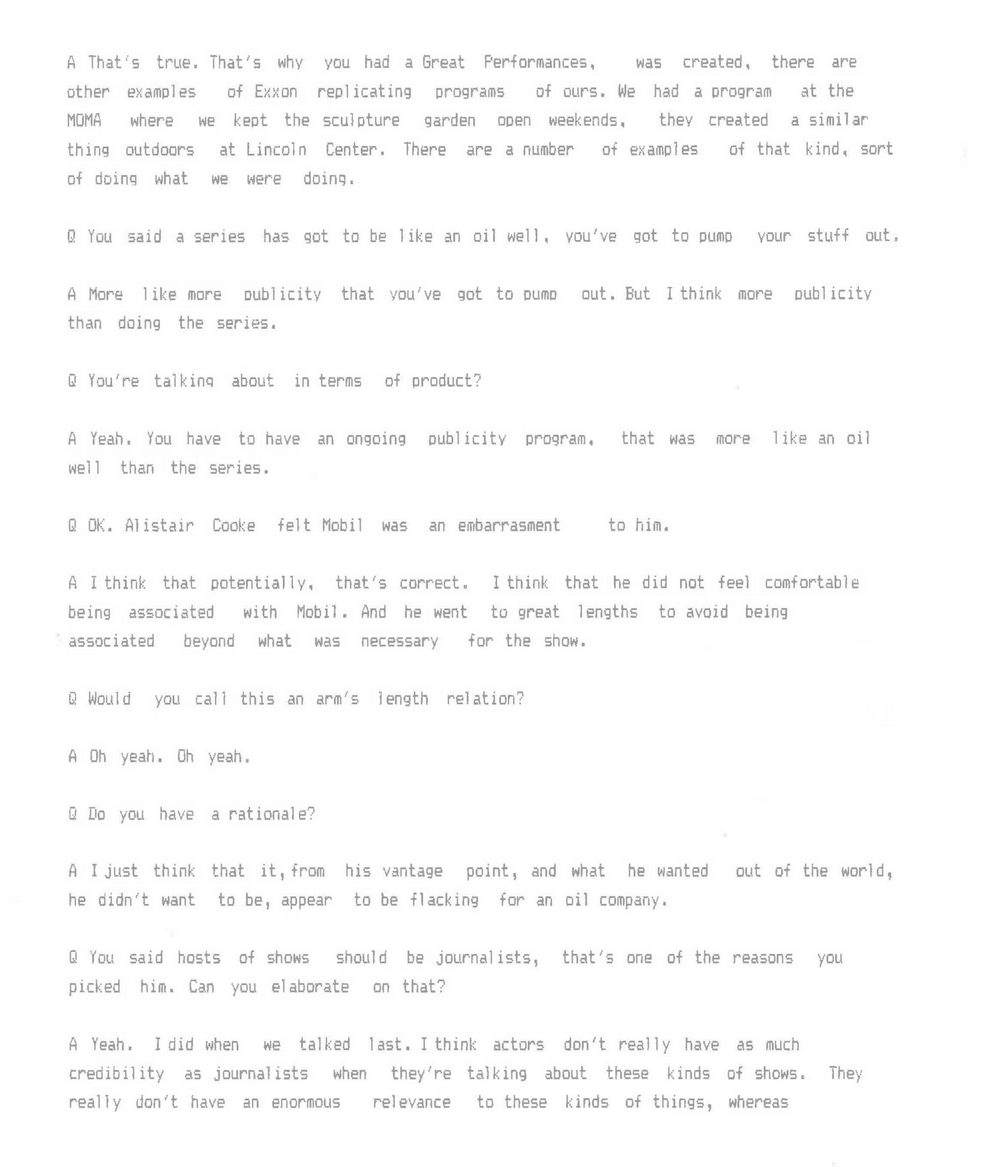
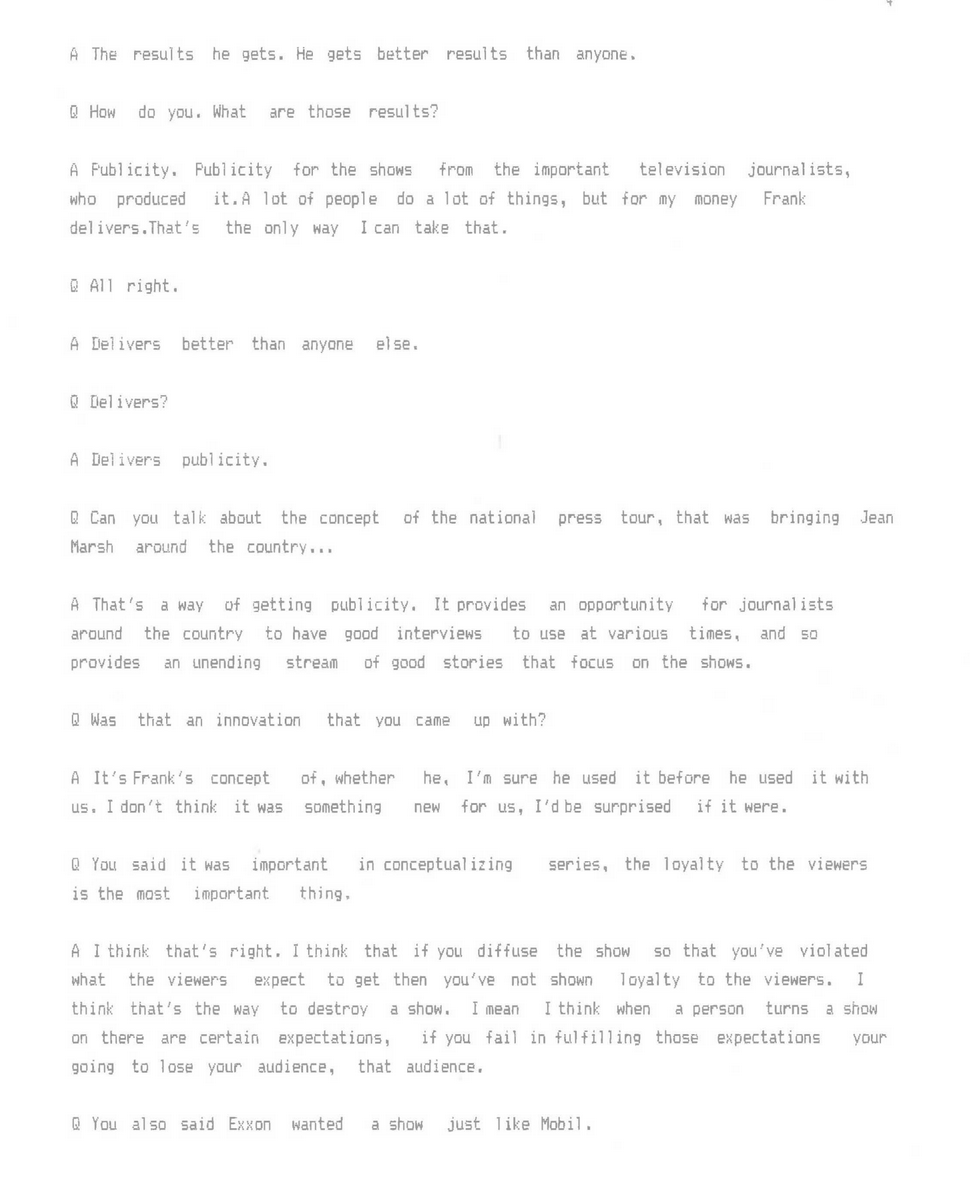
Phillips Petroleum American Enterprise Series
This series, commissioned by Phillipps in the 1970s and hosted by William Shatner, focused on framing the importance of oil in the American story, and the importance of free enterprise to everything that makes life good in America. It was used in more than half of American high schools in the 1970s. We got our hands on a copy of the original VHS and digitized it, so you can view all five parts below
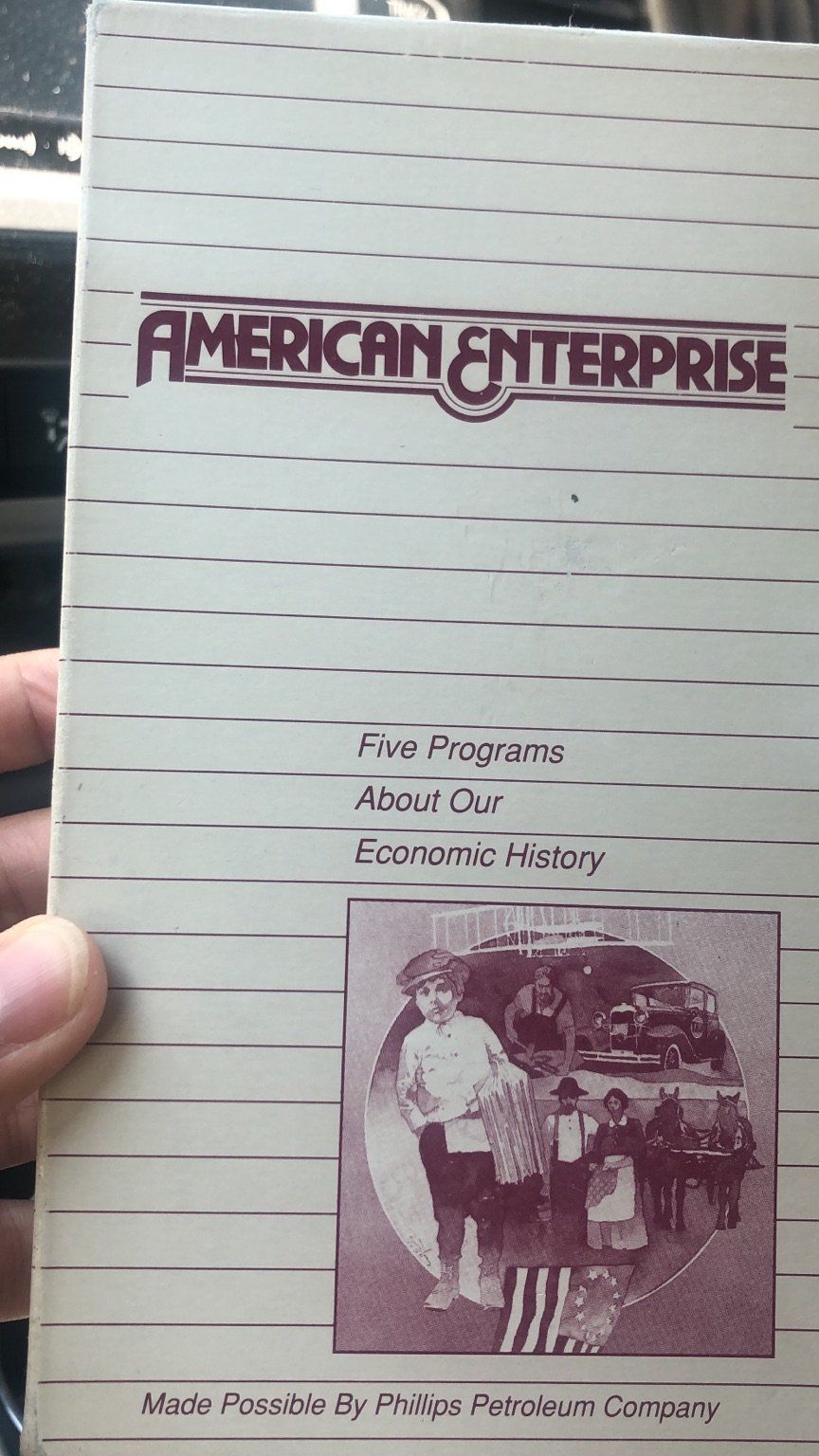
Rick Berman's Funding Proposals
Berman is notoriously tight-lipped about who funds his various campaigns, but one of the conservative family foundations that regularly funds his endeavors was hacked back in 2016 and a few of Berman's proposals were in that pile of documents. One thing that really jumped out at us was how consistently Berman claims his nickname "Dr. Evil" as a badge of honor and as evidence of his efficacy.
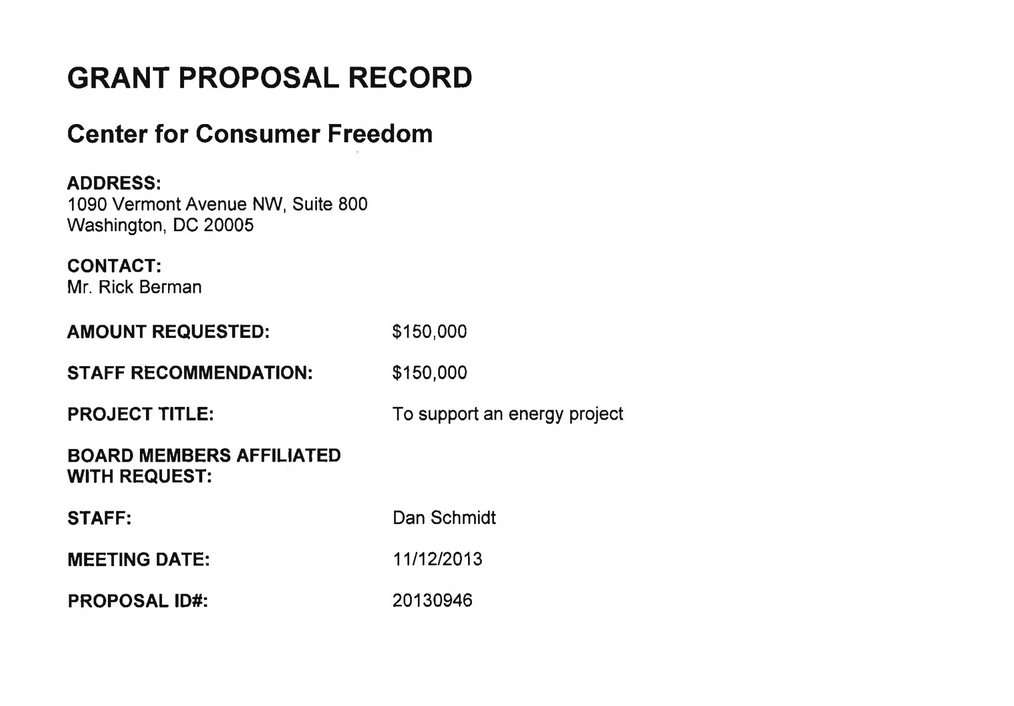
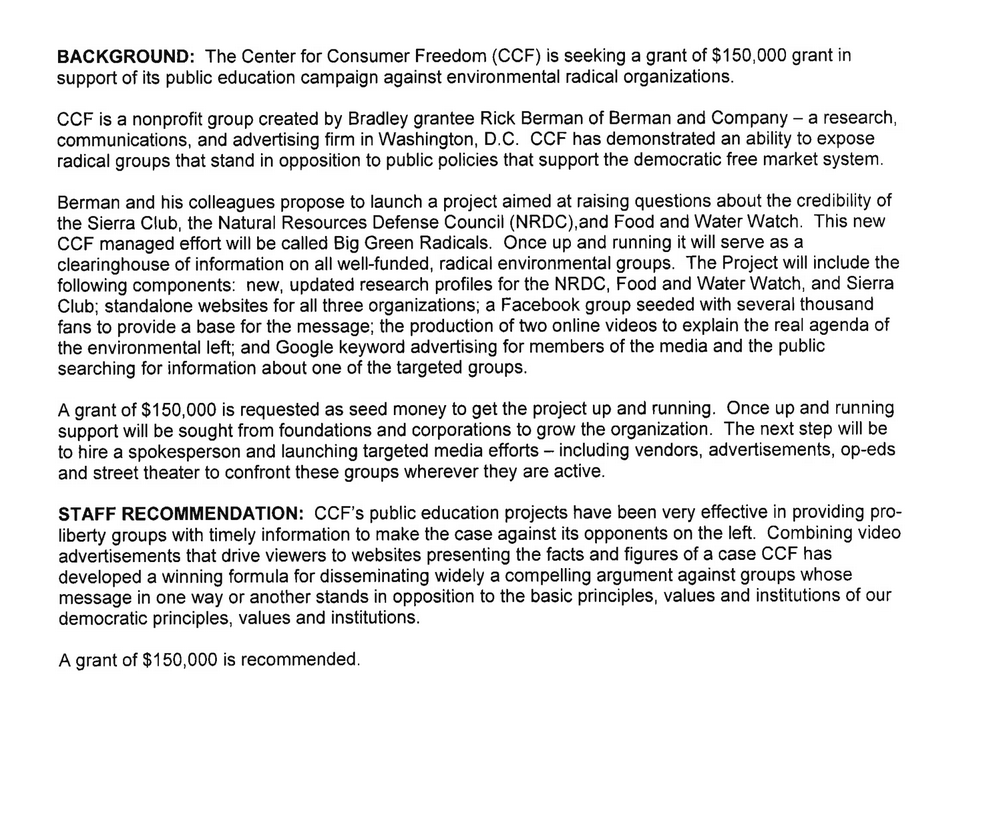
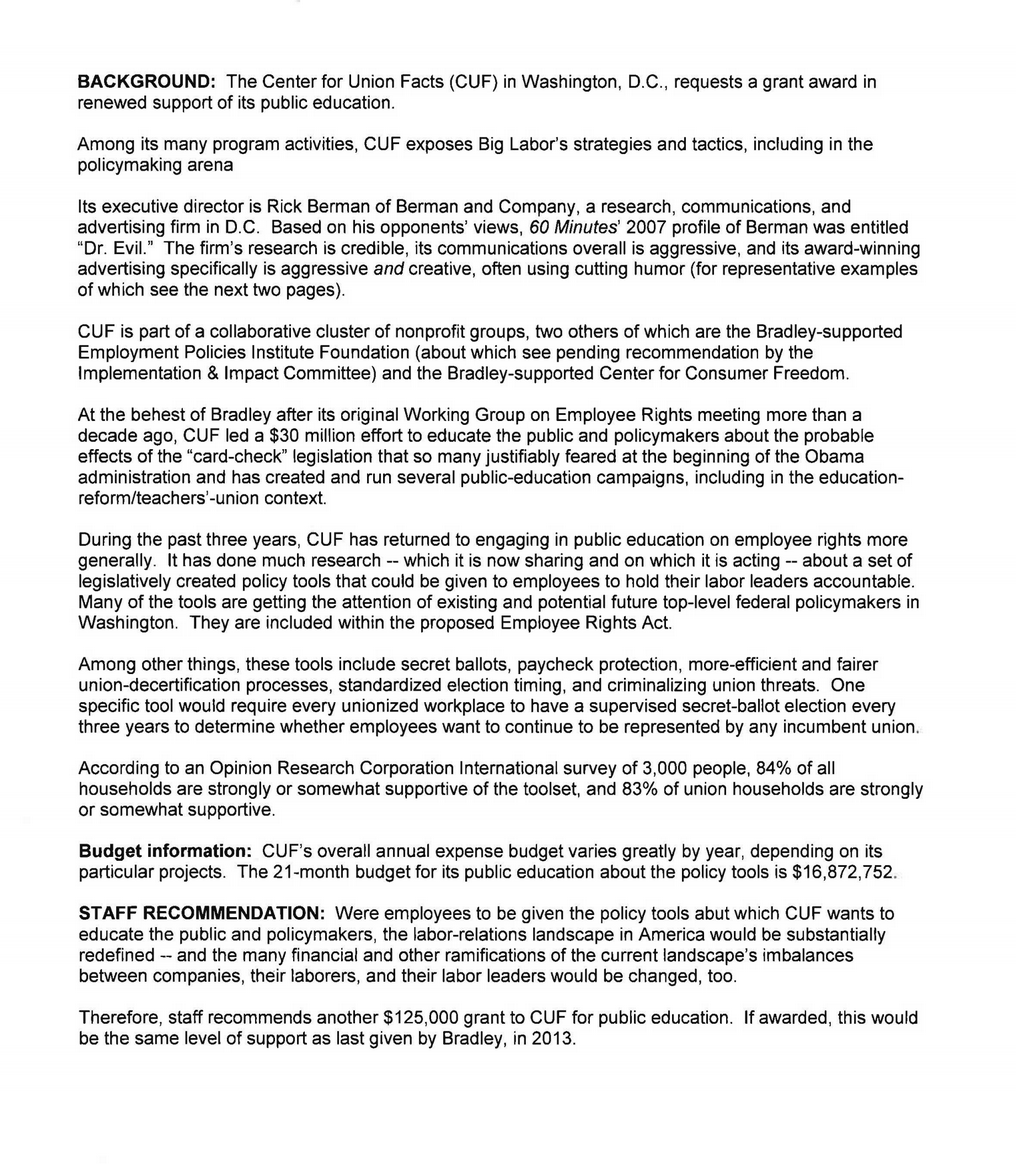
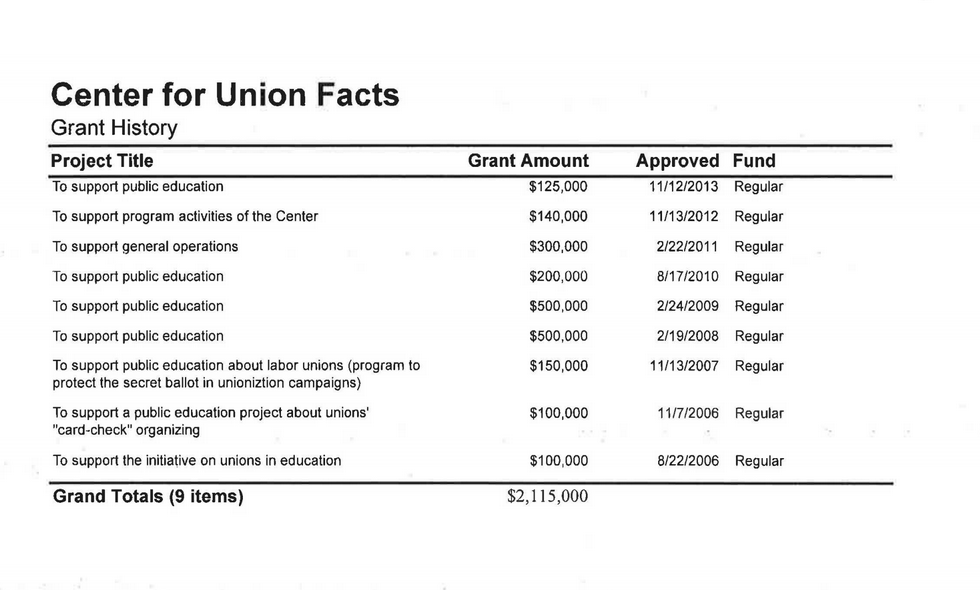
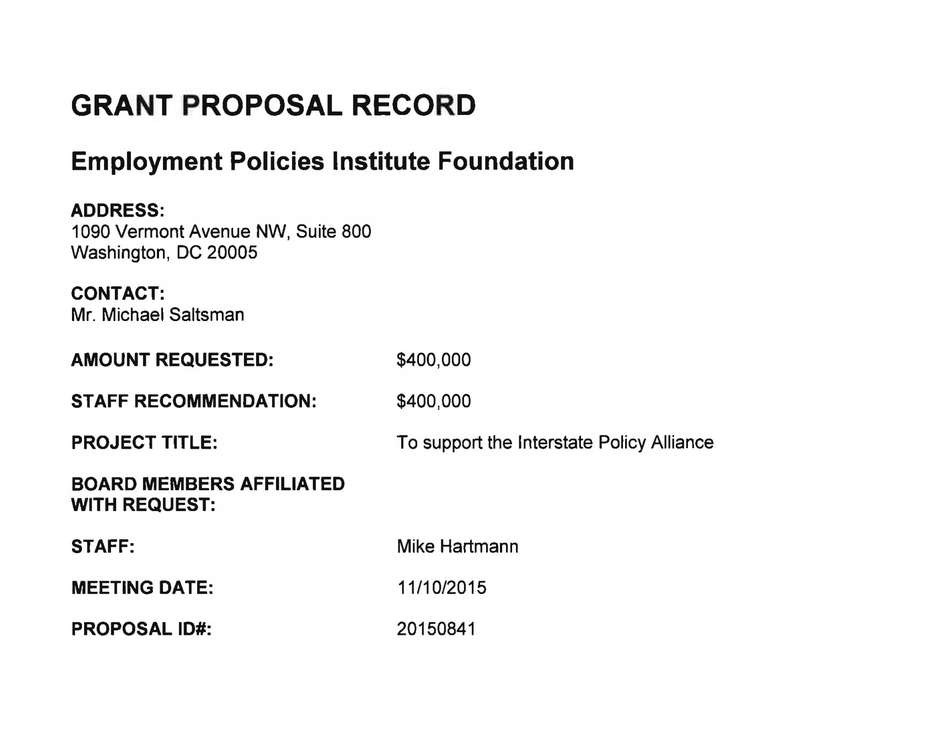
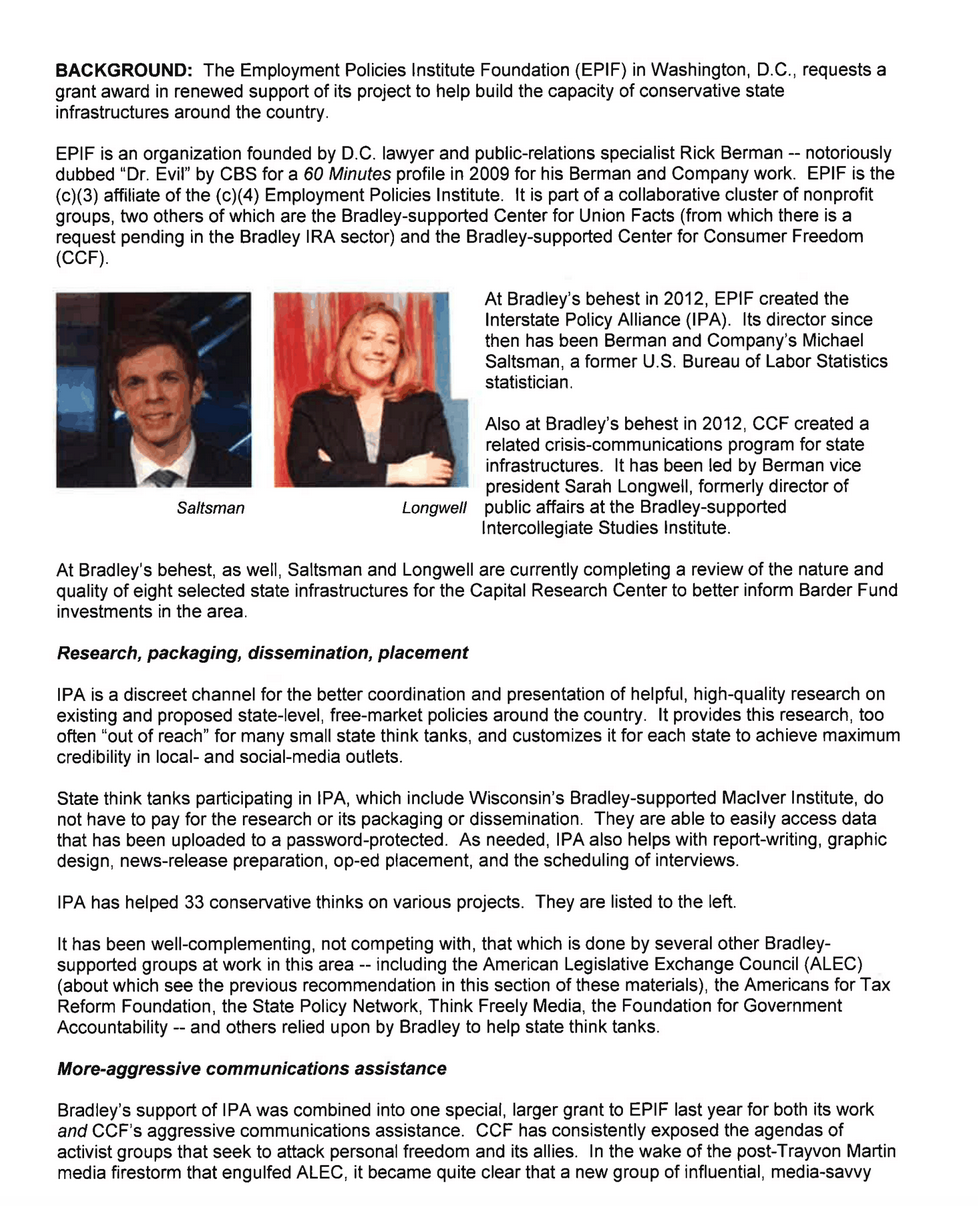
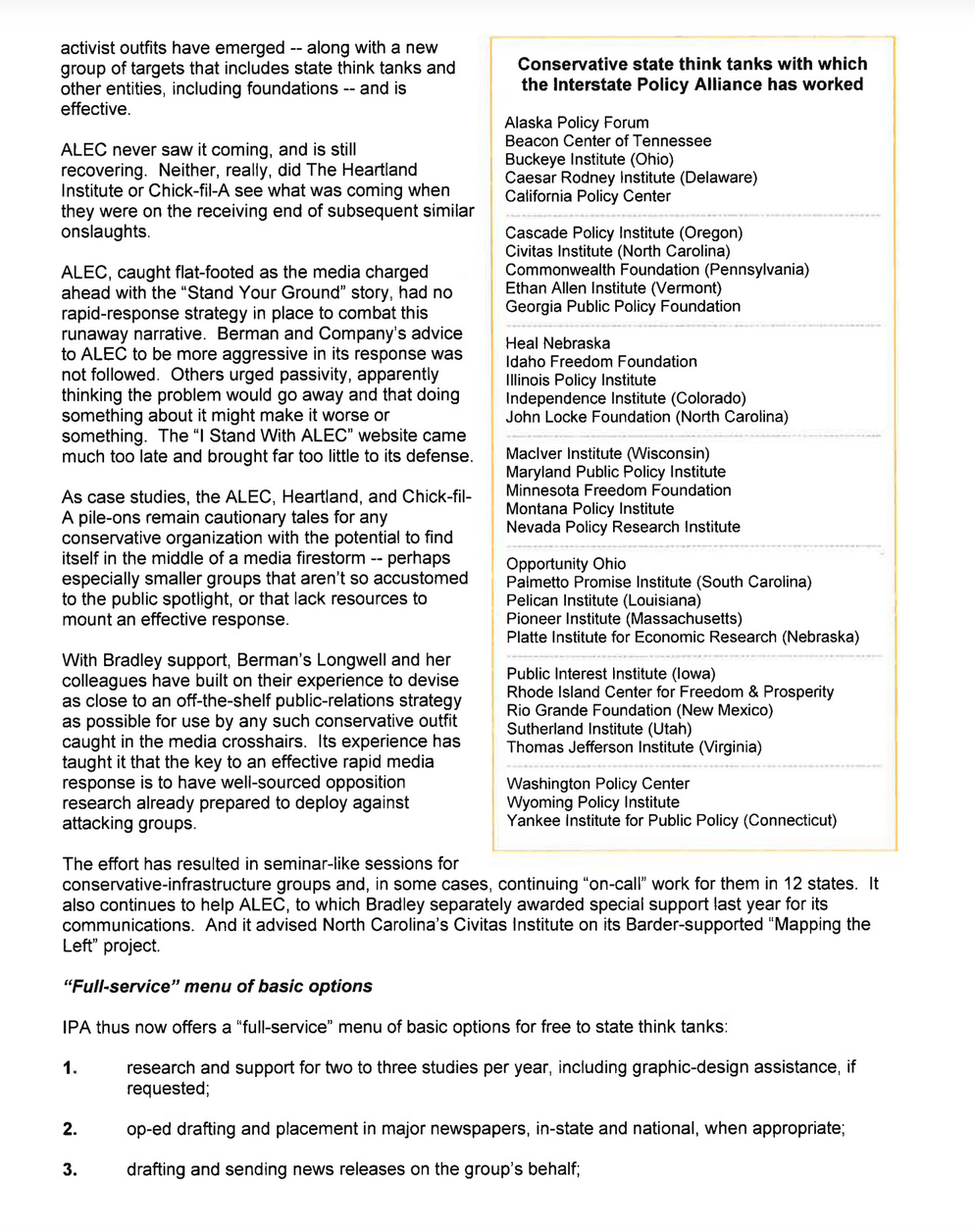
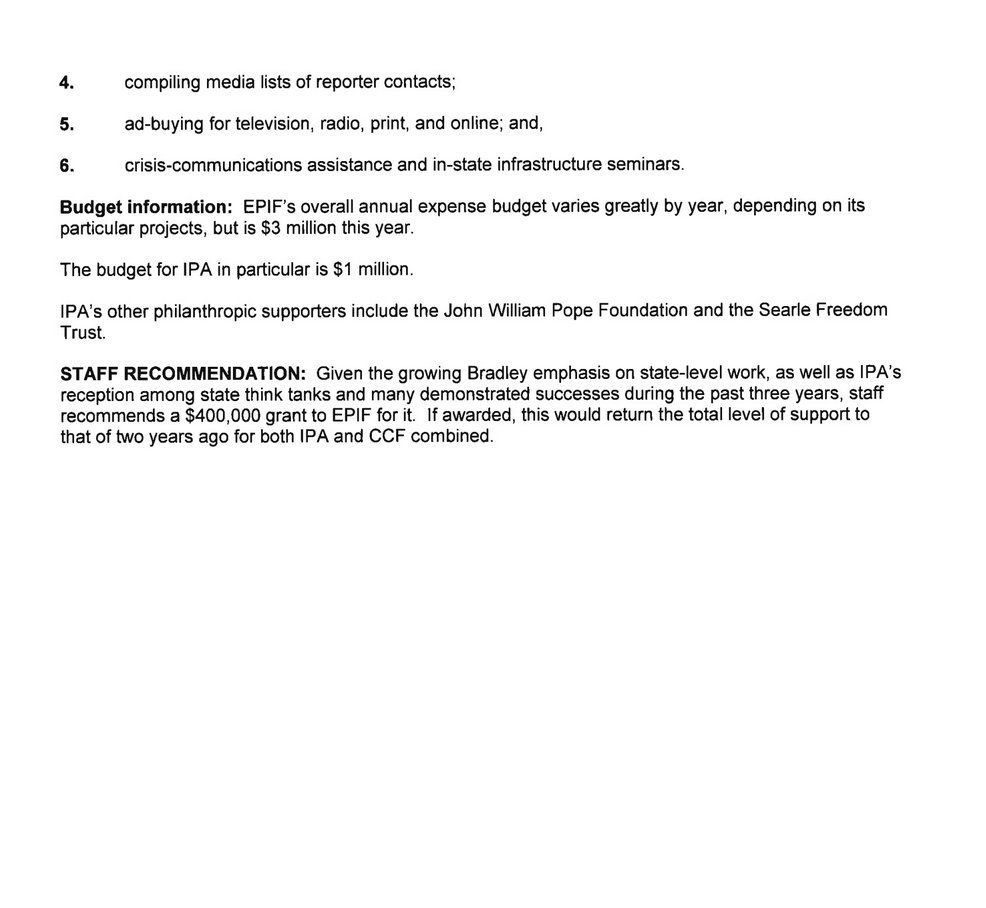
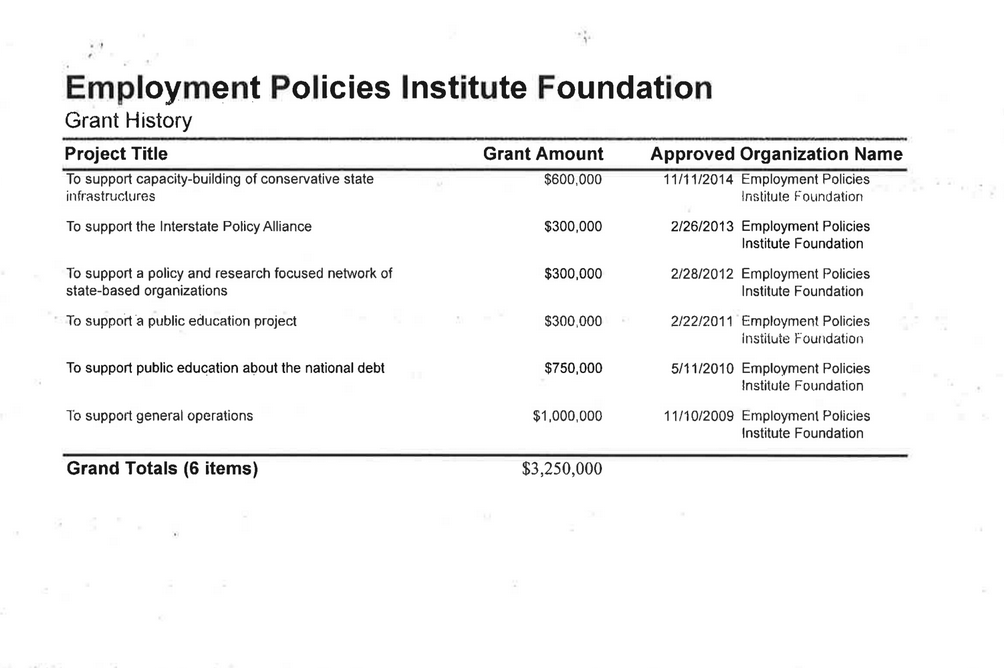
E. Bruce Harrison and the Kyoto Protocol
E. Bruce Harrison was particularly adept at creating cross-industry groups that could accomplish more lobbying together against certain types of environmental regulation than they could ever accomplish on their own. The first client of the firm he started with wife Patricia de Stacy Harrison was a coalition the two had pulled together of industries that had a bone to pick with the Clean Air Act and Clean Water Act, it was called the National Environmental Development Association, described as "a partnership of labor, agriculture and industry working for better environmental solutions together." As concern about global warming began to increase in the 1980s, Harrison pulled another group together, this time of fossil fuel, automotive, rail, manufacturing companies—anyone whose bottom line might suffer if emissions were regulated—into a group he called the Global Climate Coalition. Harrison also started an international group called EnviroCom, which pulled together international PR firms interested in licensing his particular approach to environmental communications. Using these two groups, he was able to ensure business a seat at the table during the crafting of the UN Framework on Climate Change (UNFCC), the framework every report from the Intergovernmental Panel on Climate Change has been based on since the very first one in 1992. The first document shown here is Harrison's own case study for the Global Climate Coalition, given to researcher Melissa Aronczyk as she was working on her book, A Strategic Nature. In it, he writes that the two-pronged focus of the group was to communicate:
"First, that scientific evidence for global warming is not strong enough to warrant drastic actions; and second, that regardless of science, actions must be evaluated in terms of the potential economic costs."
This thinking permeated the approach on climate policy from jump.
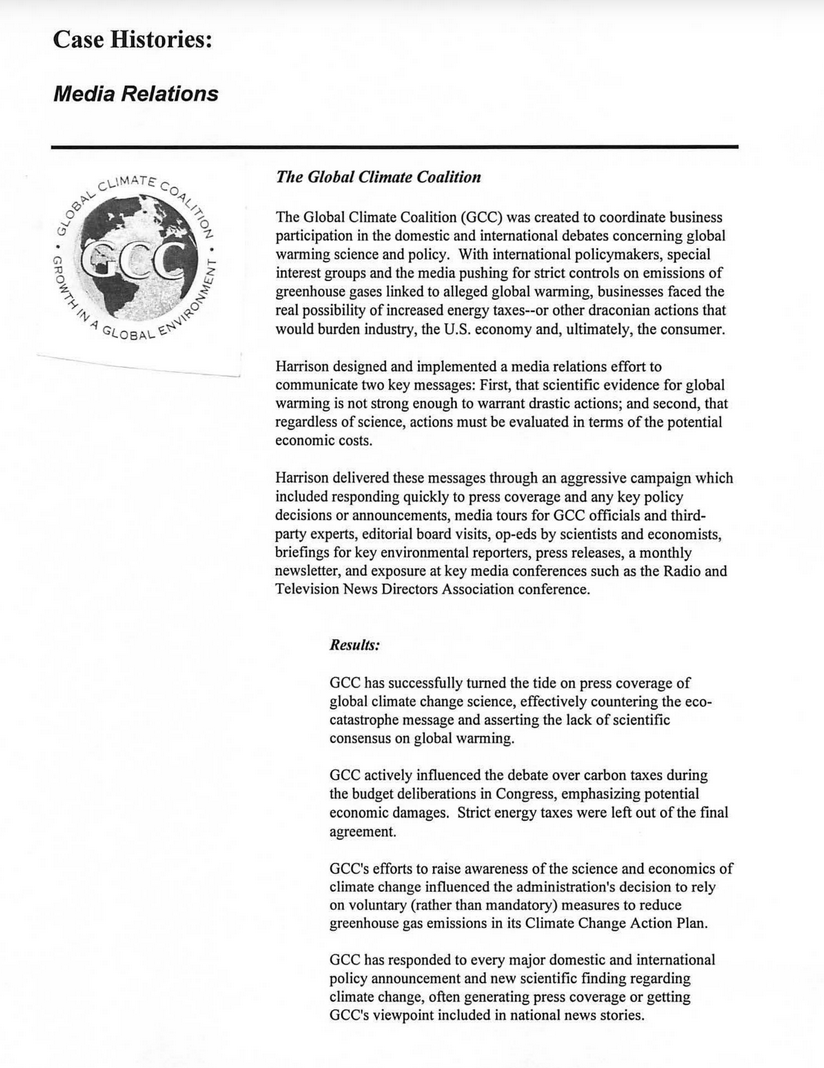
The Ads
A sampling of some of the ways these strategies made it out to the public via various ad campaigns.
